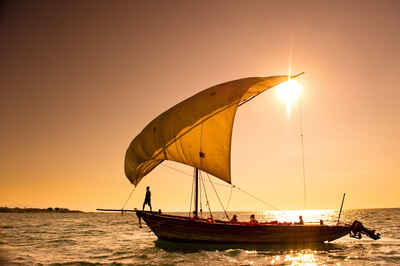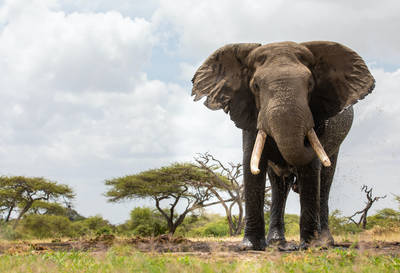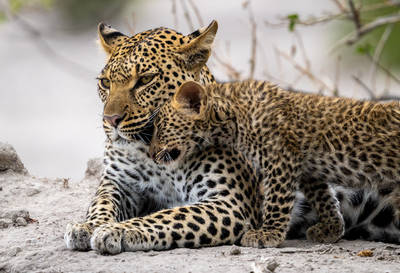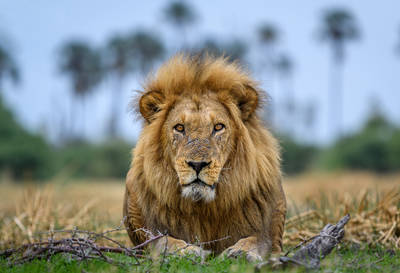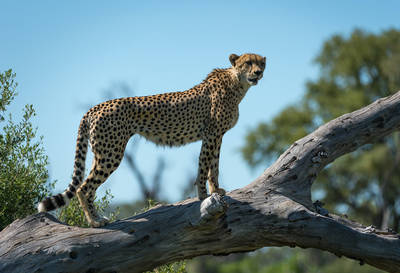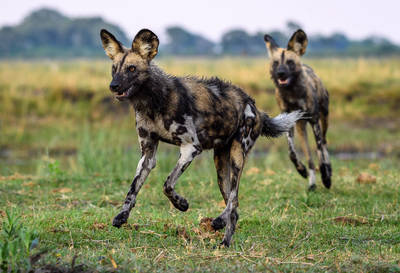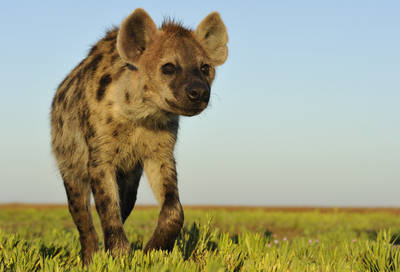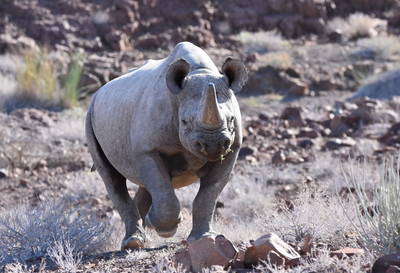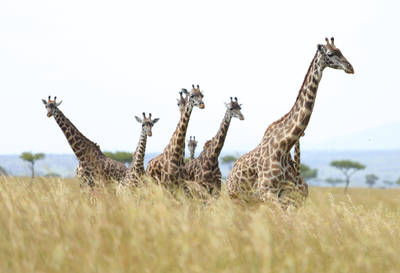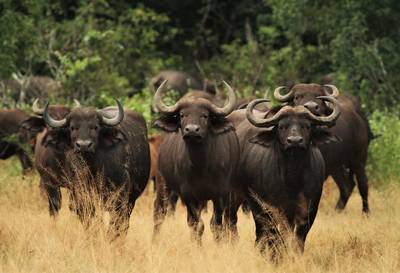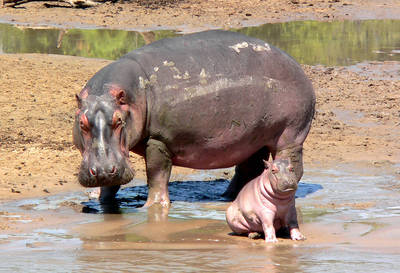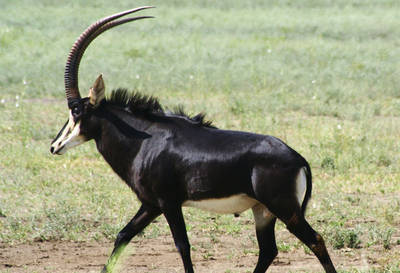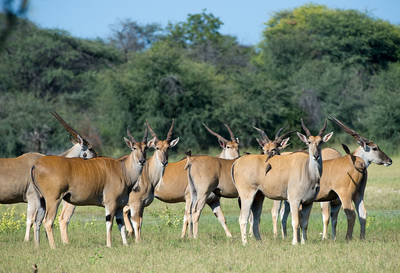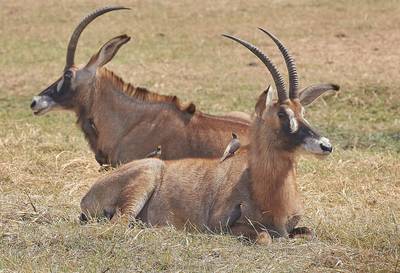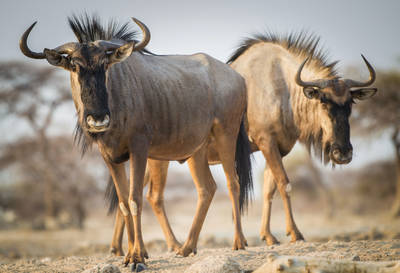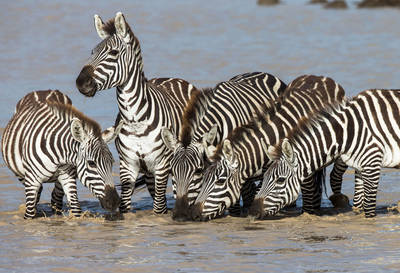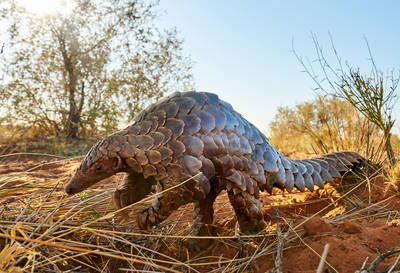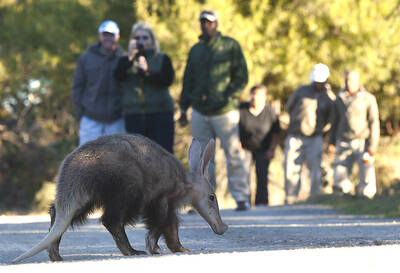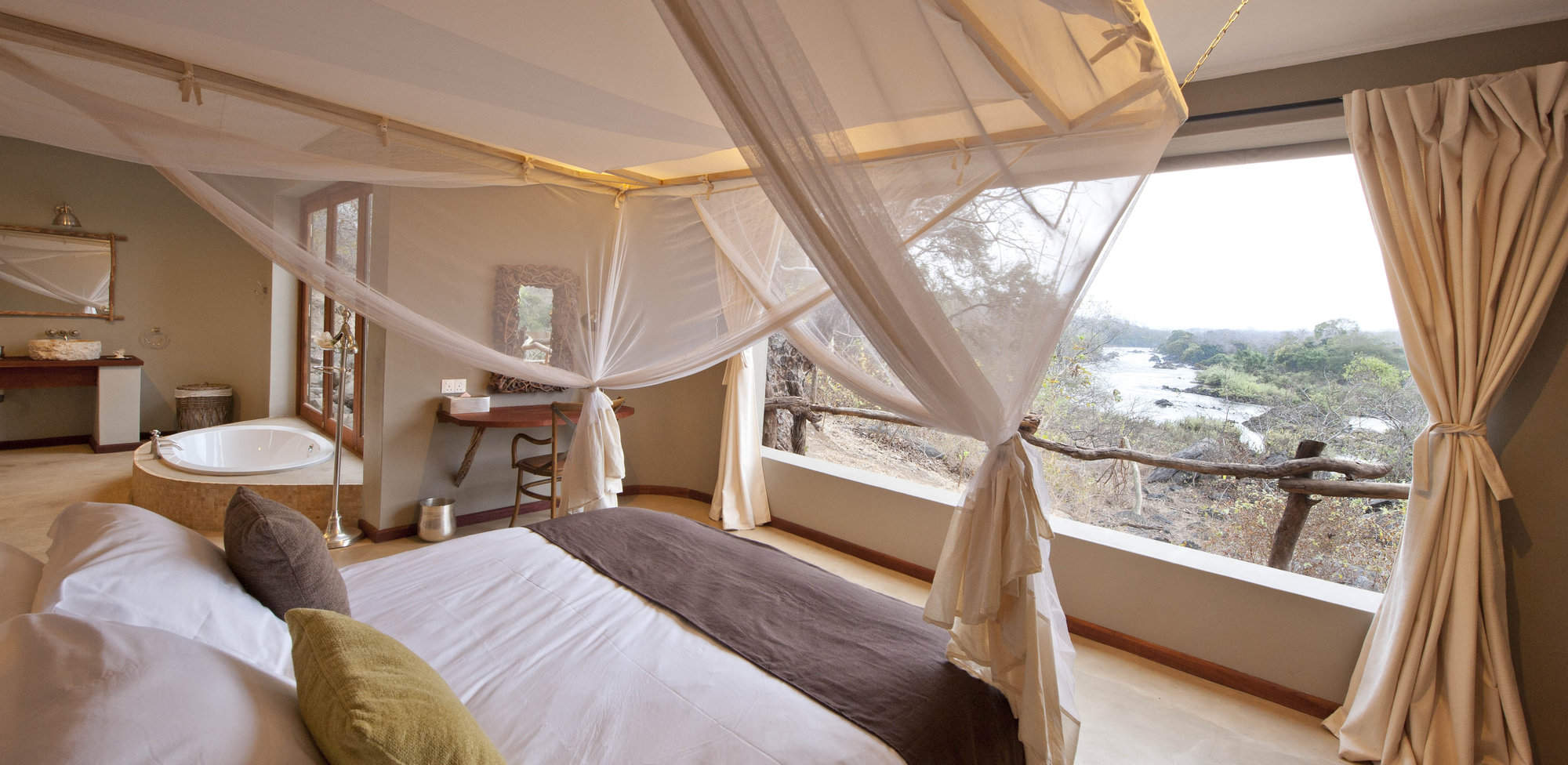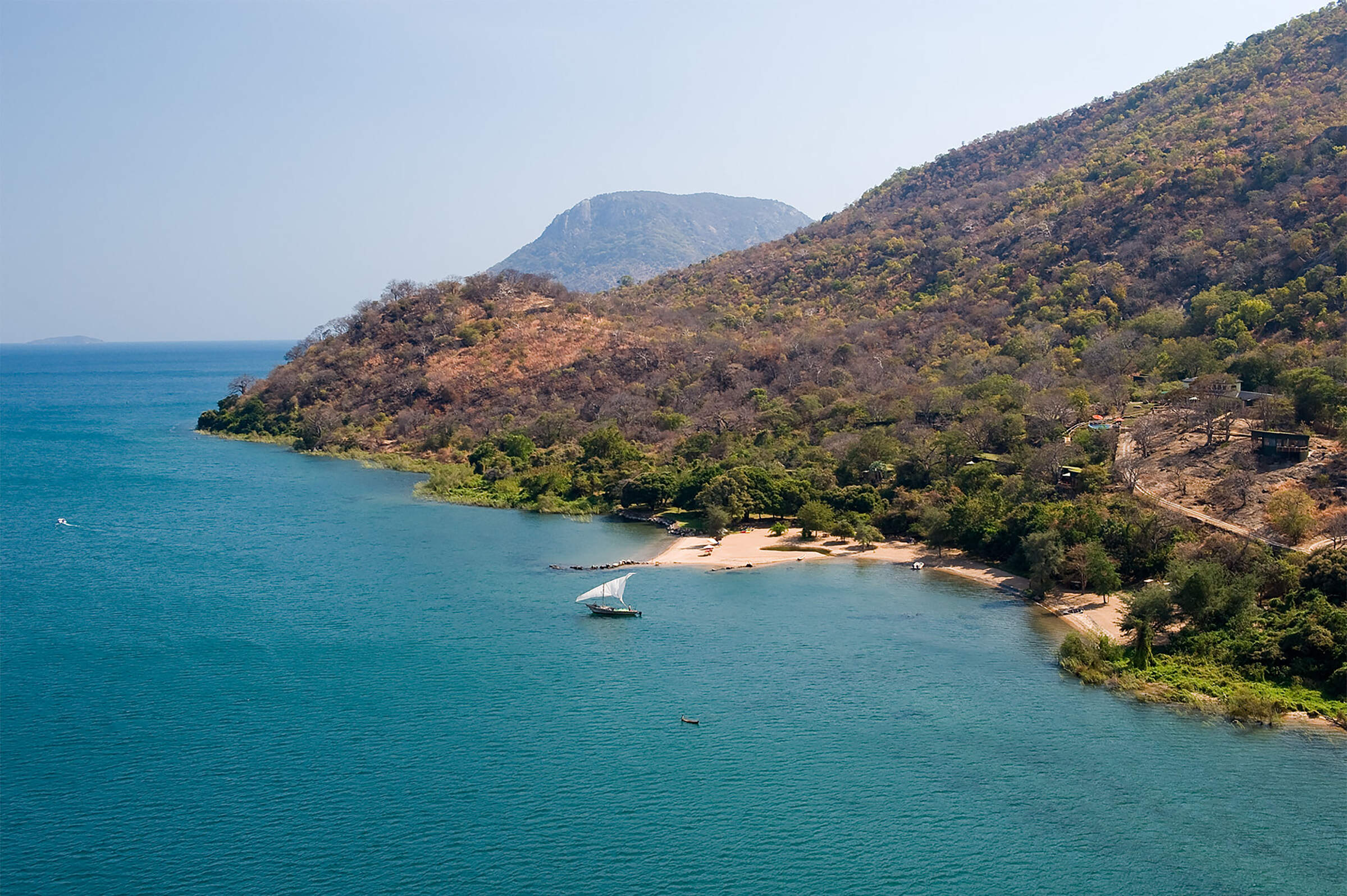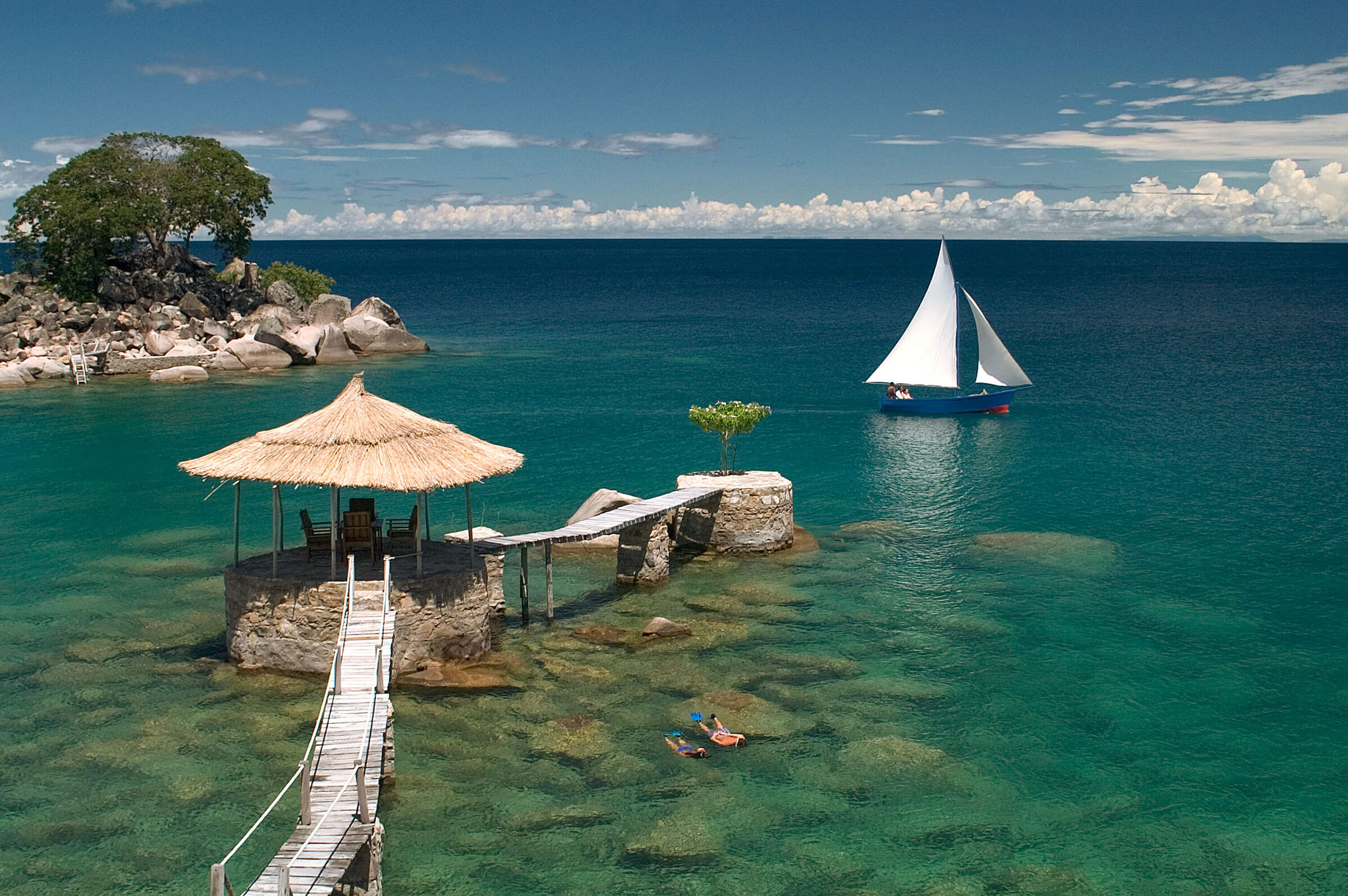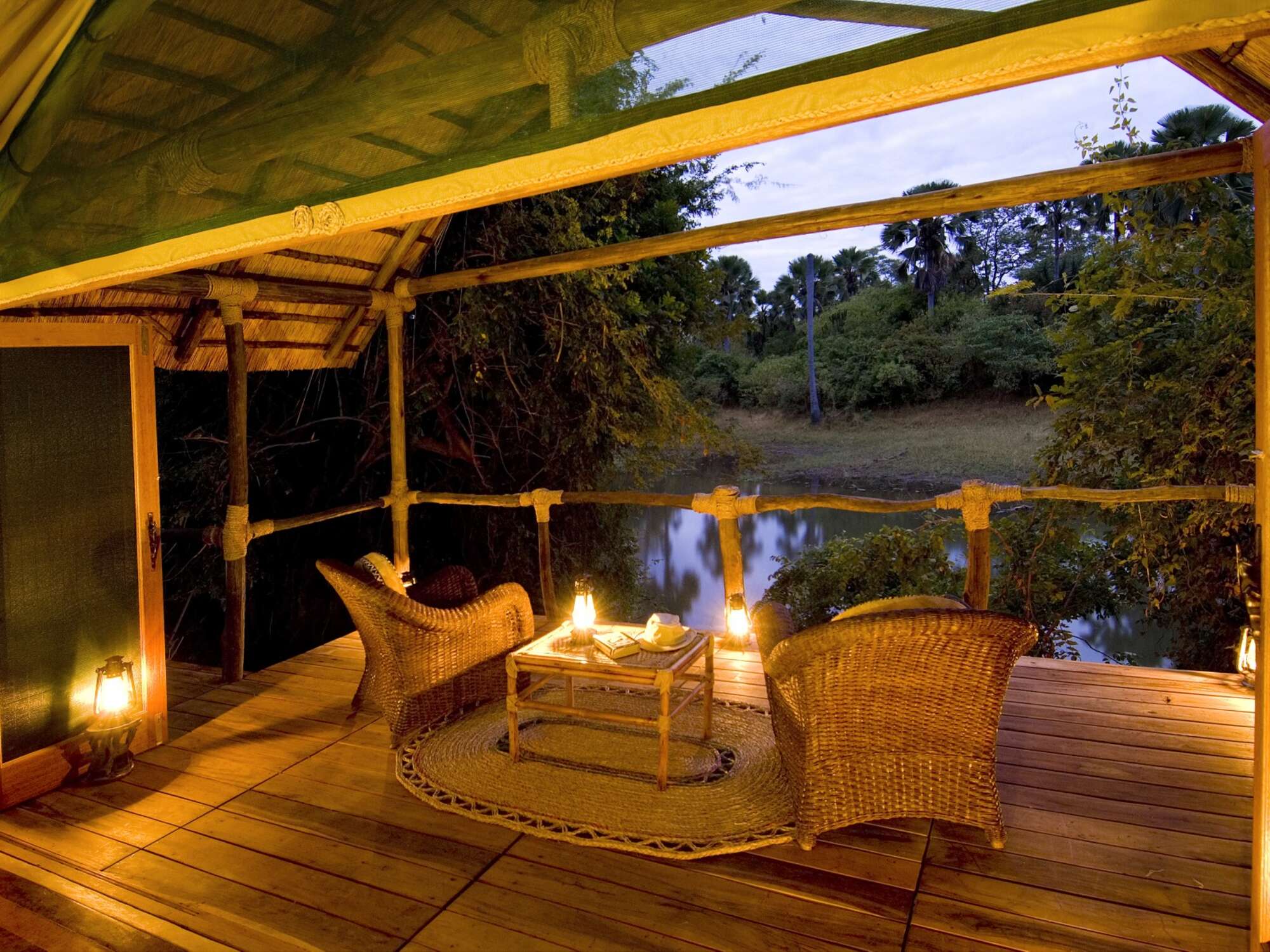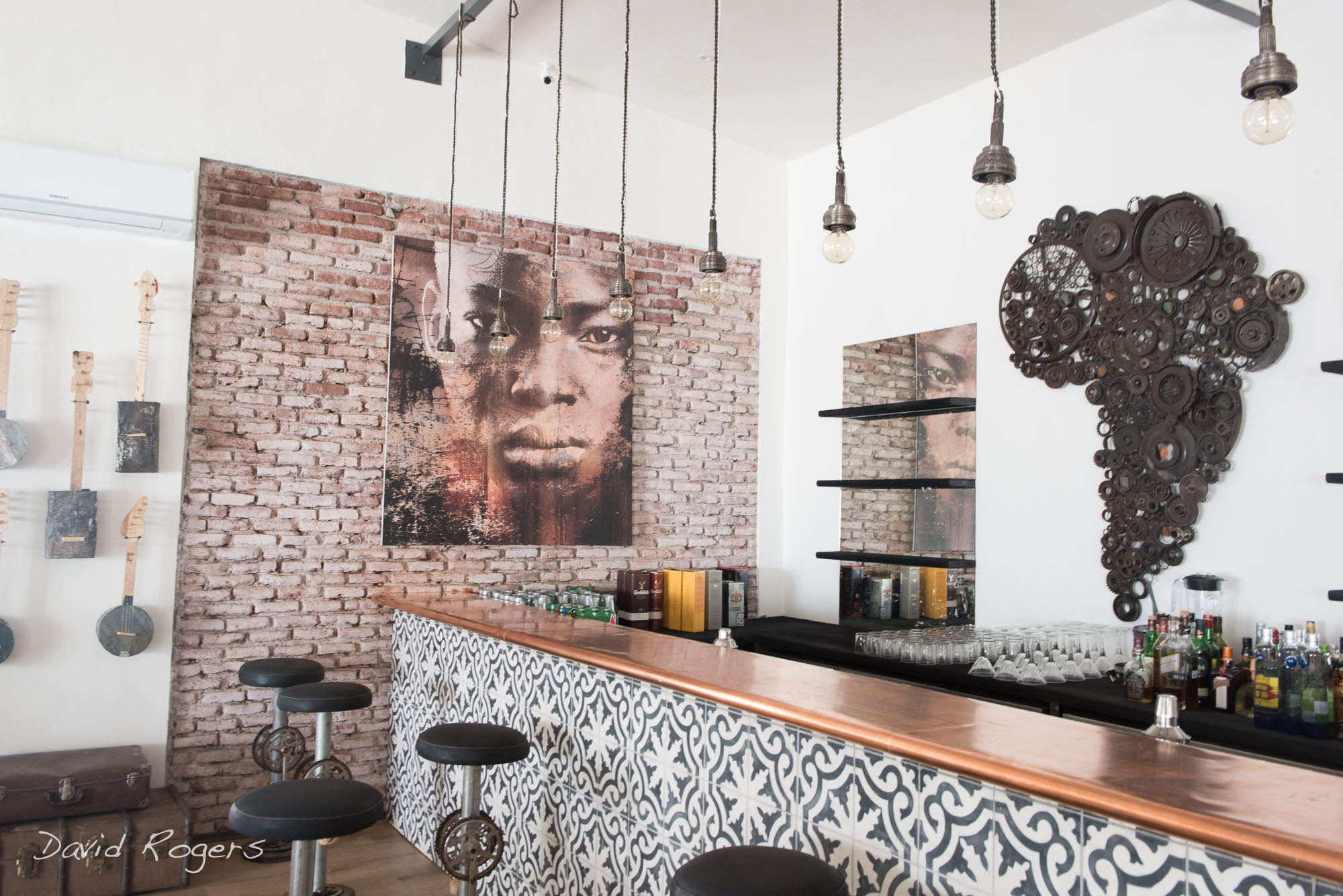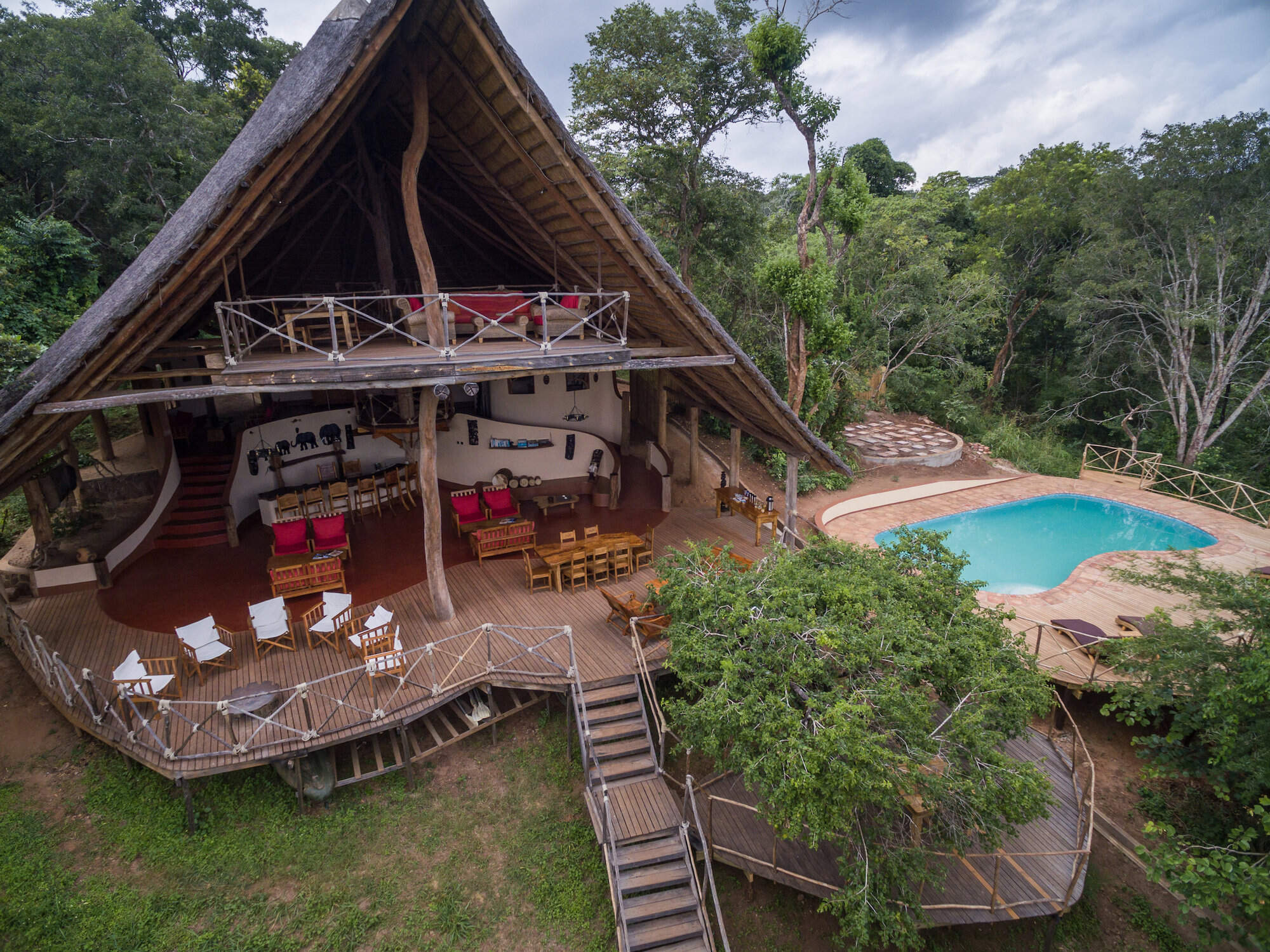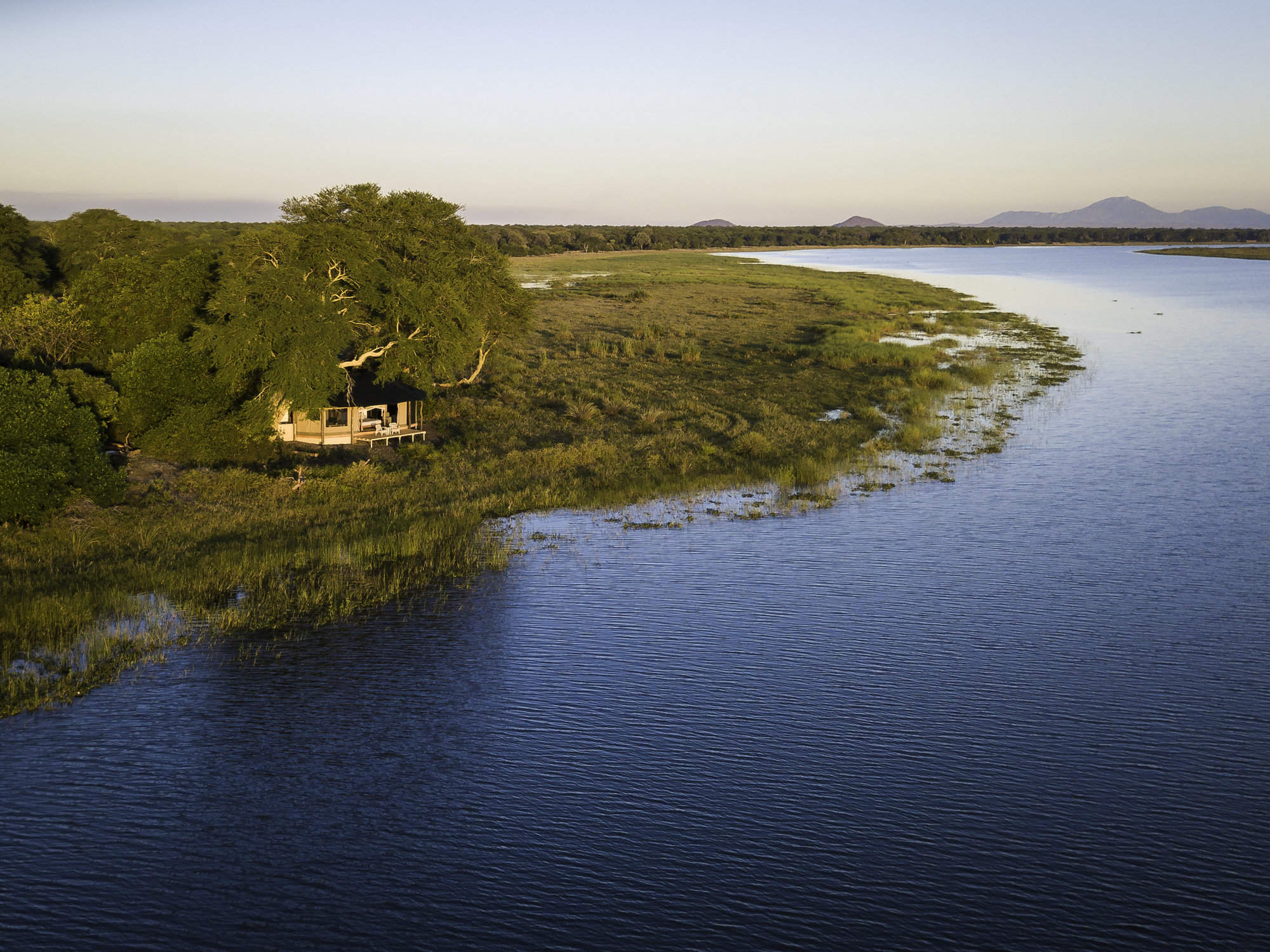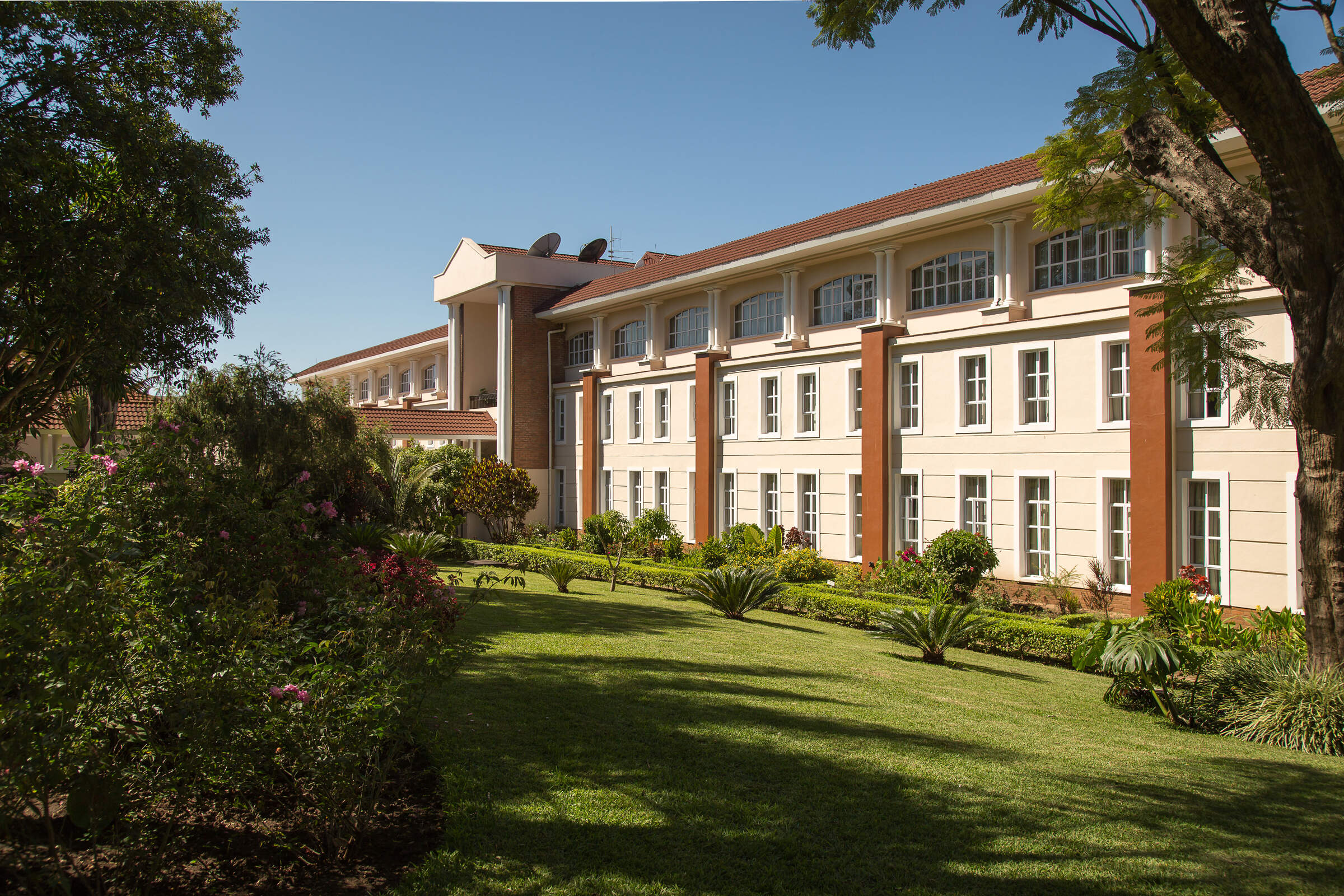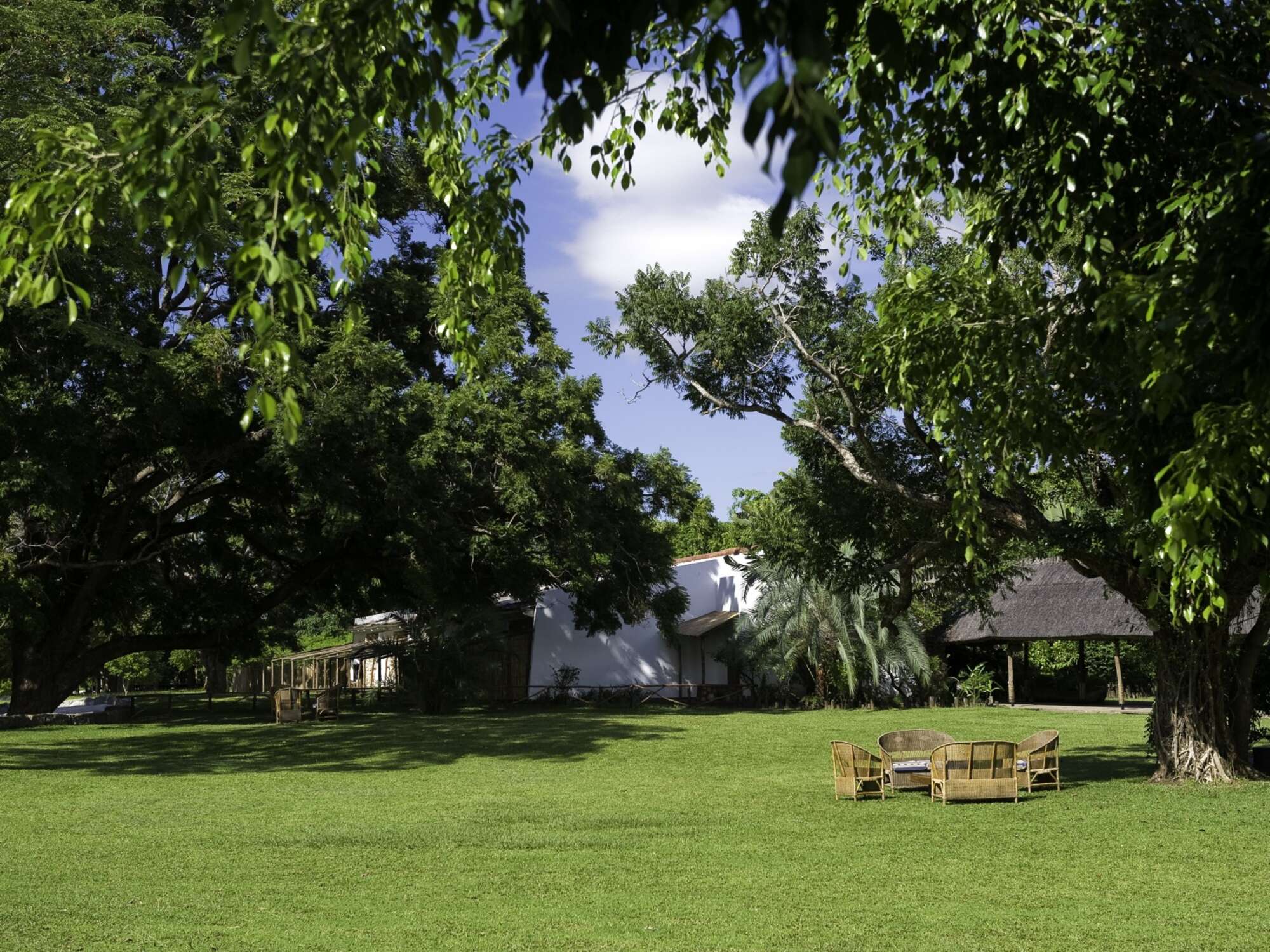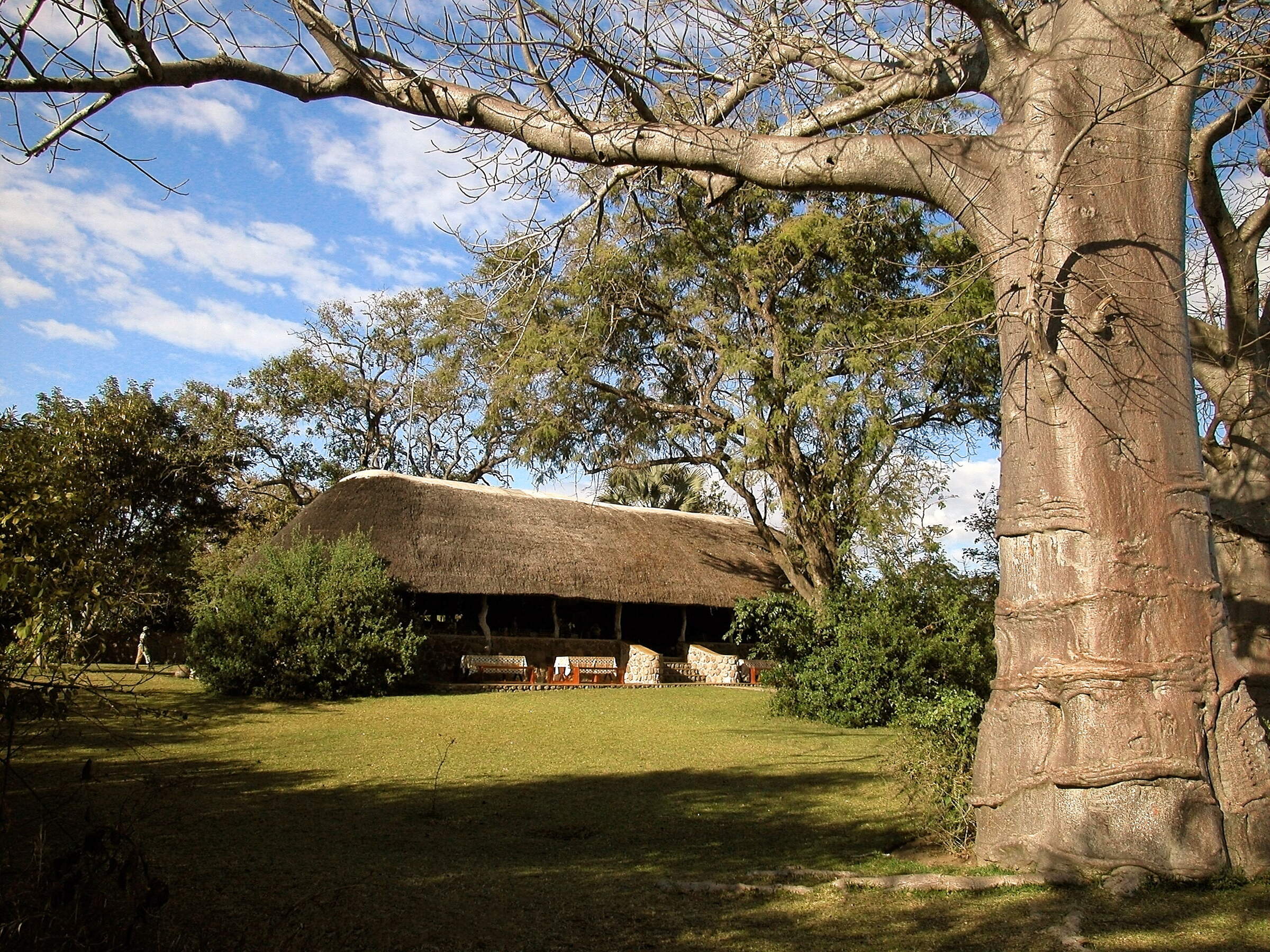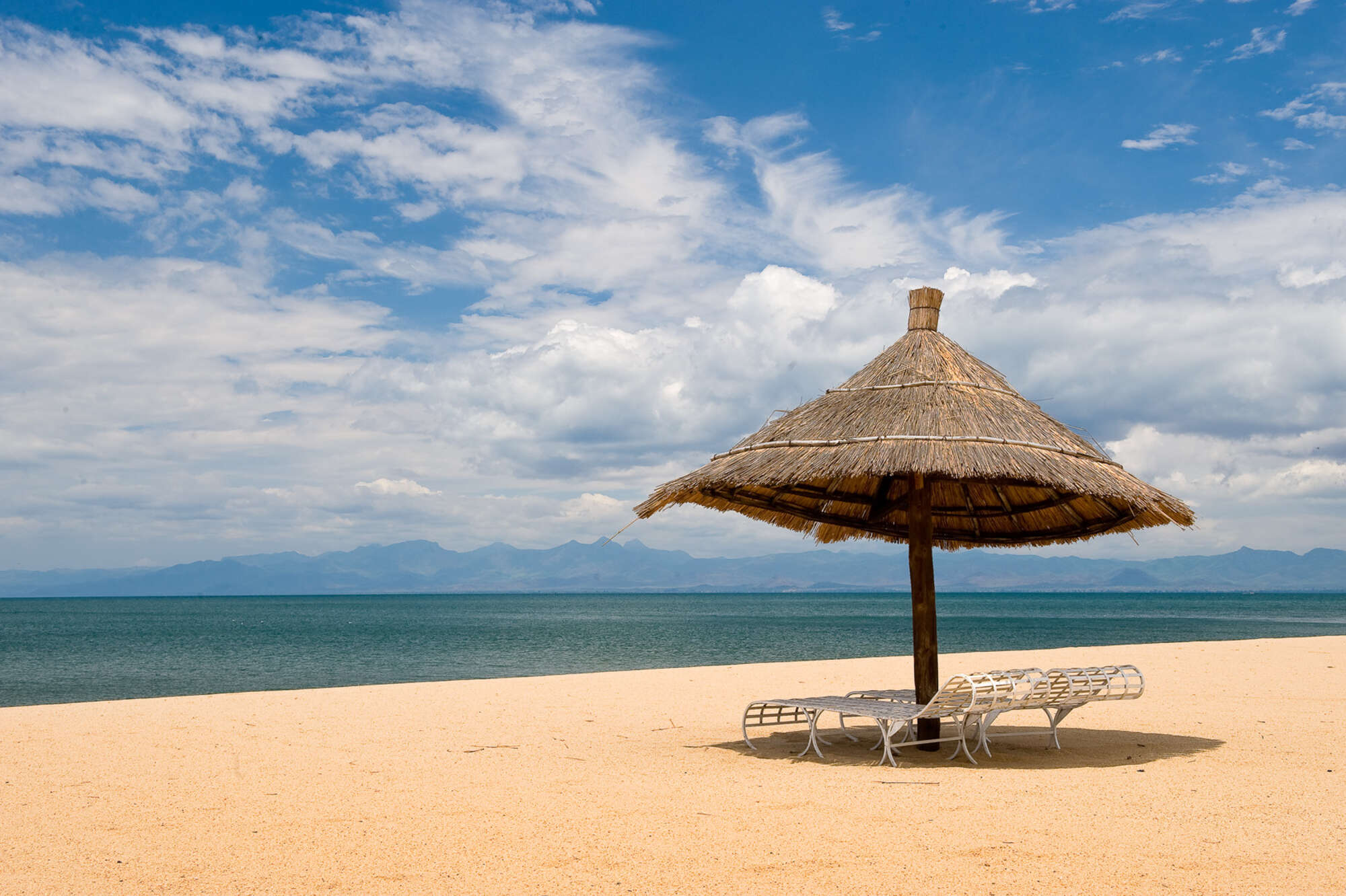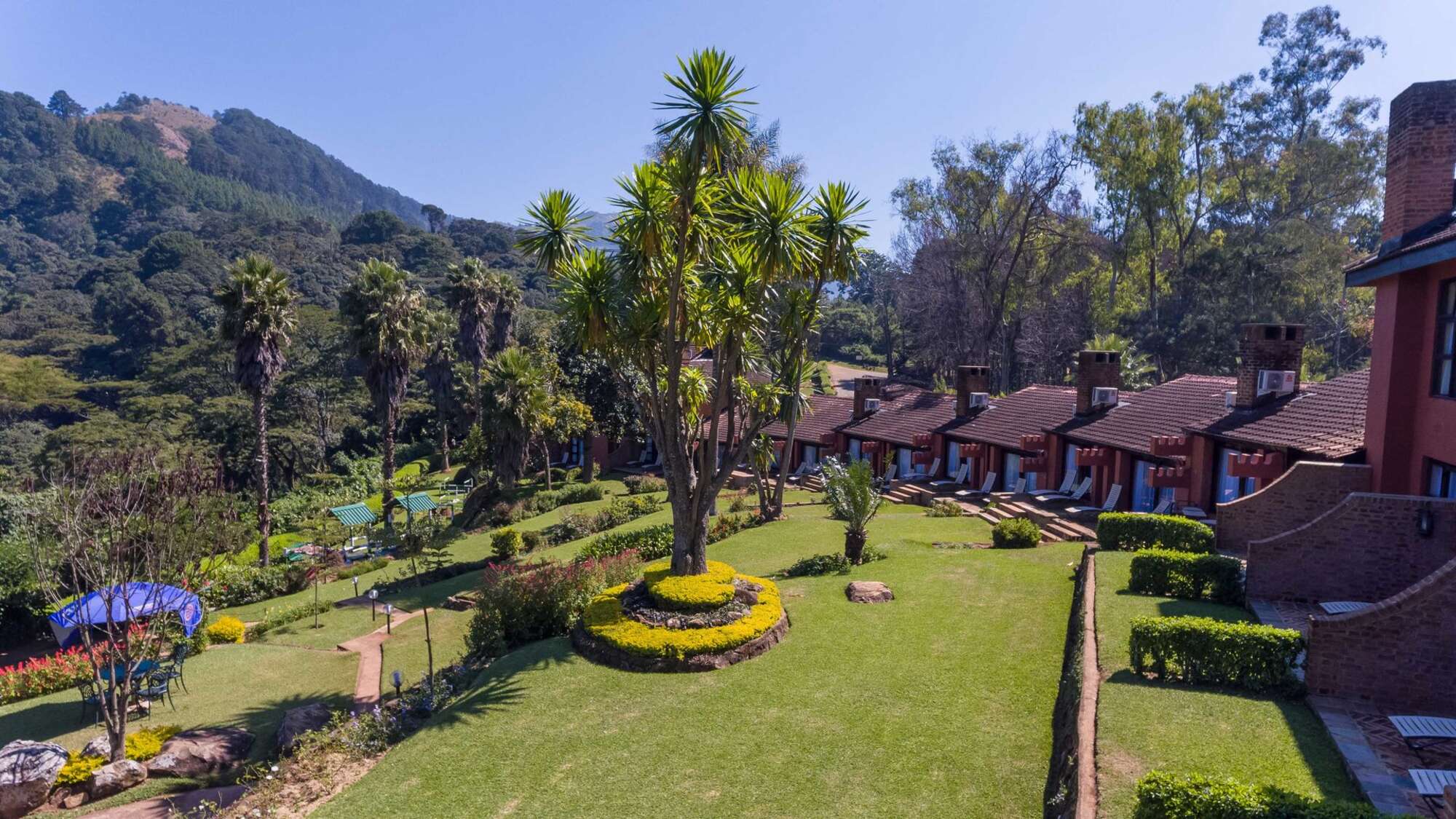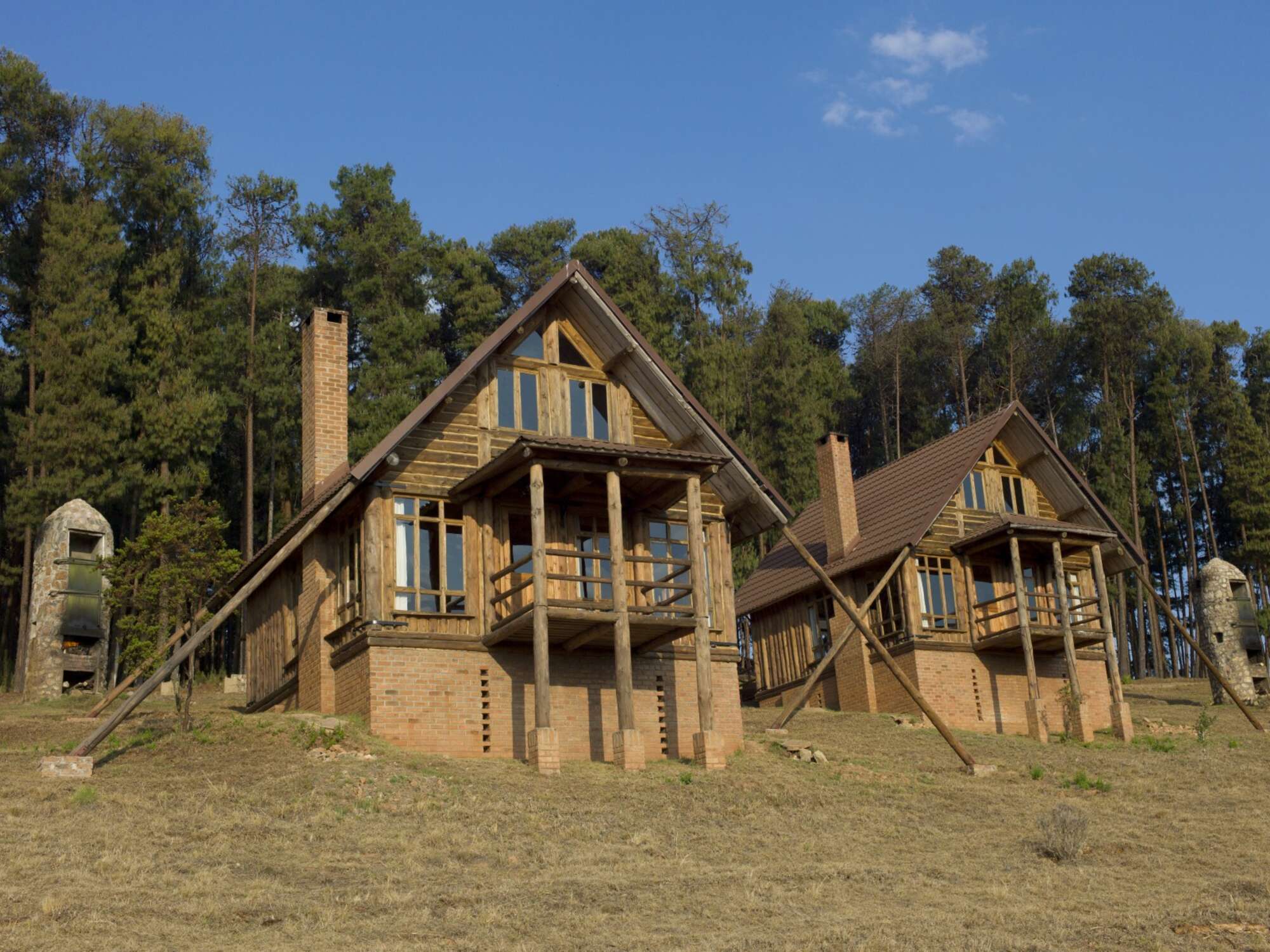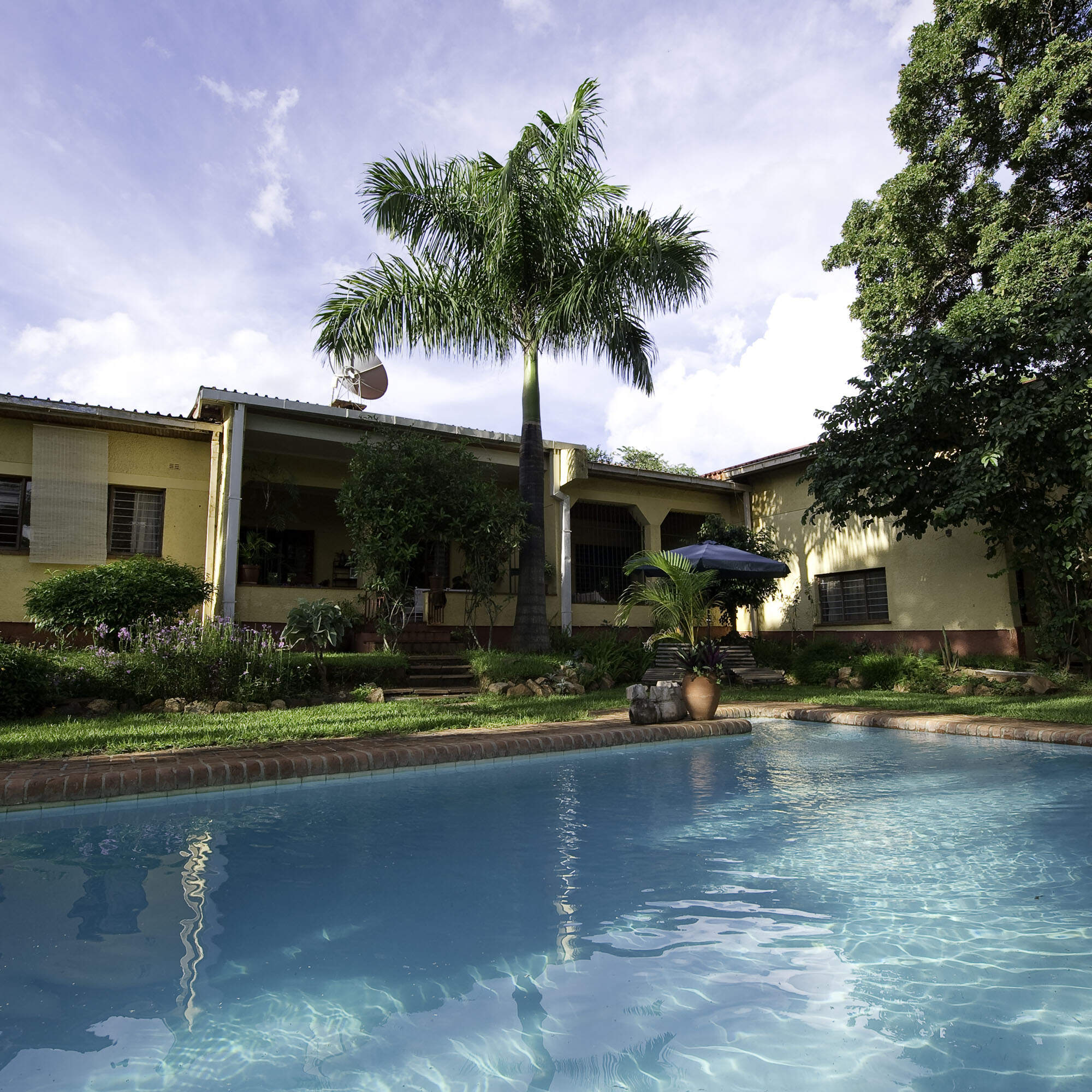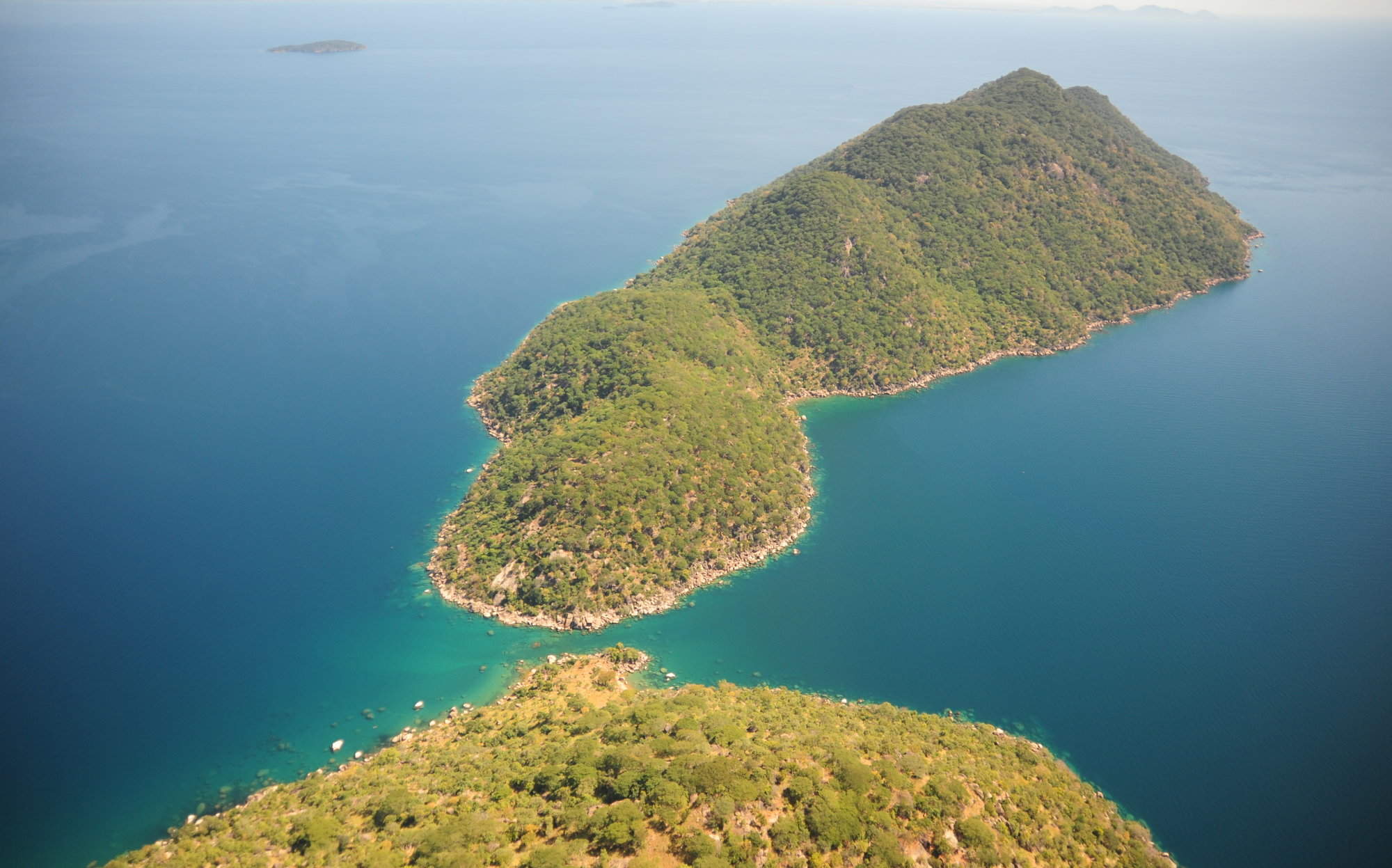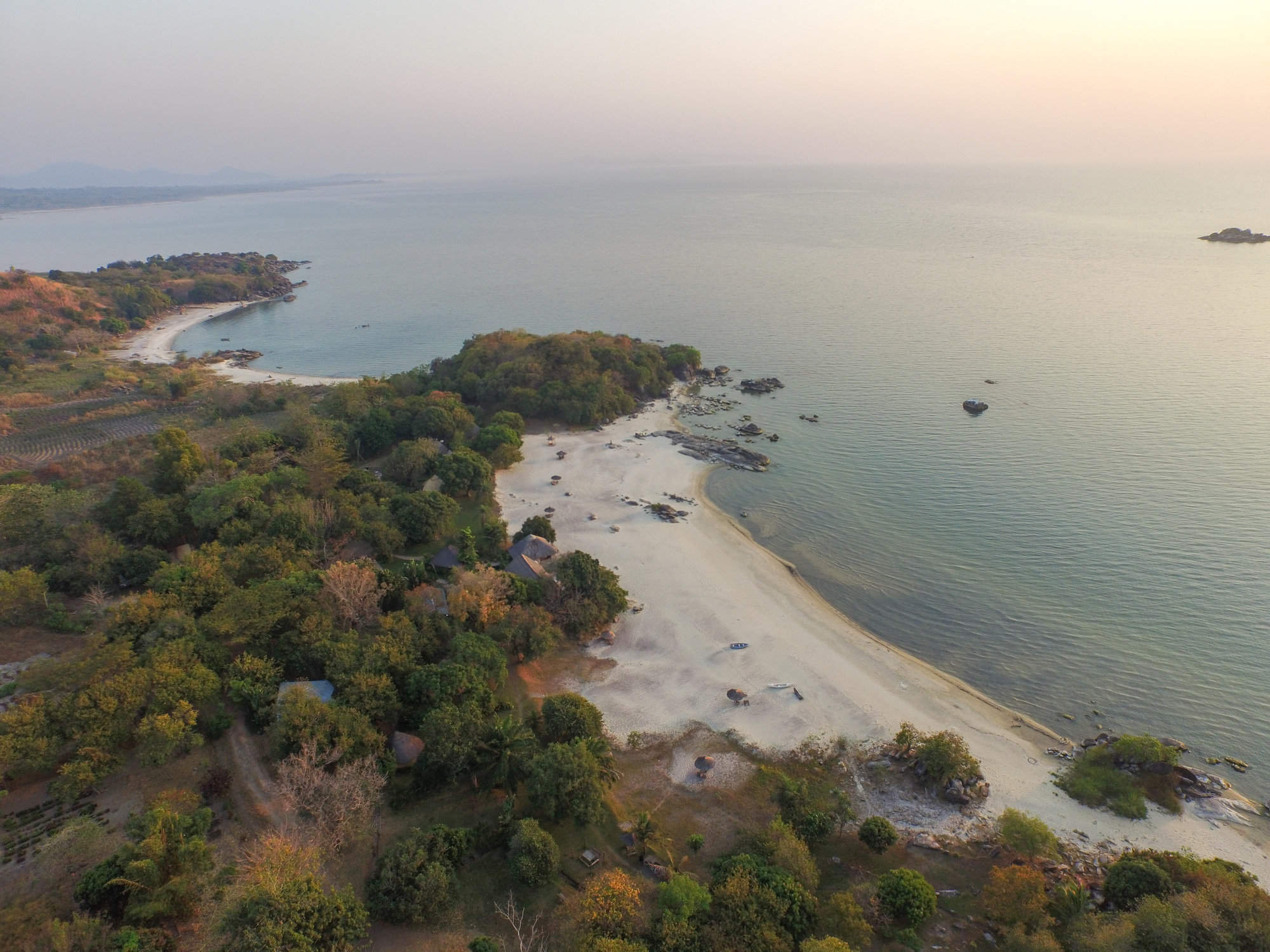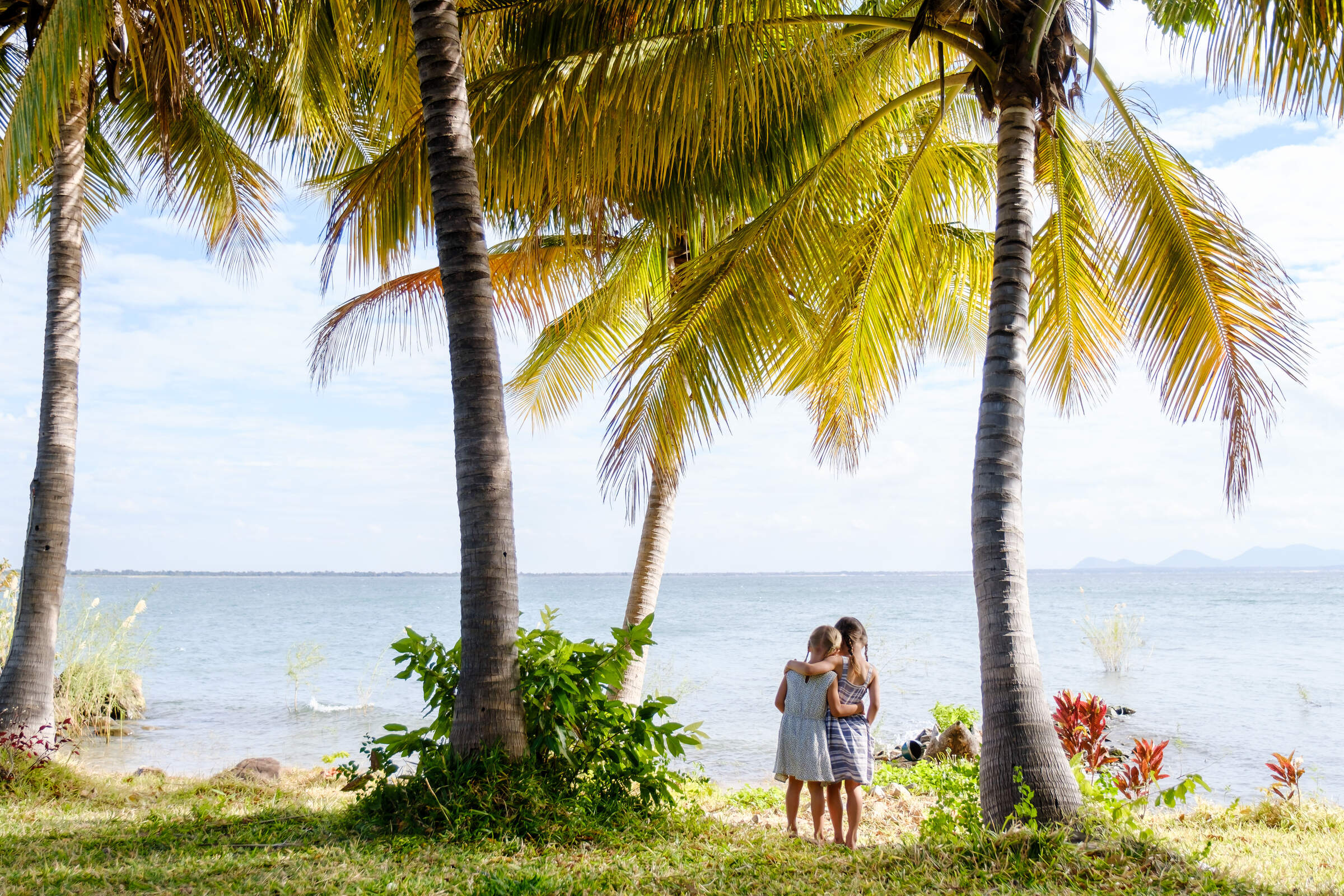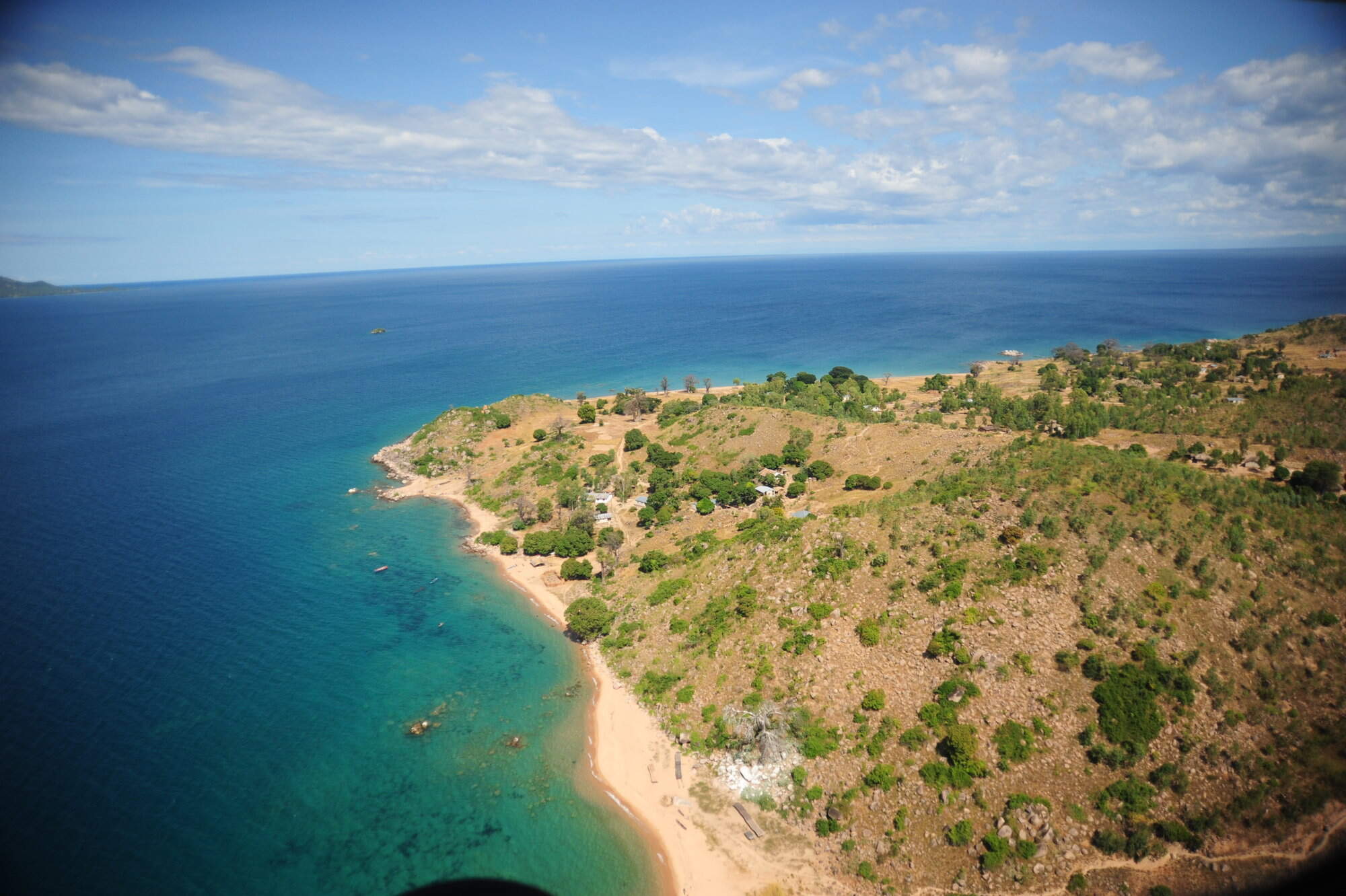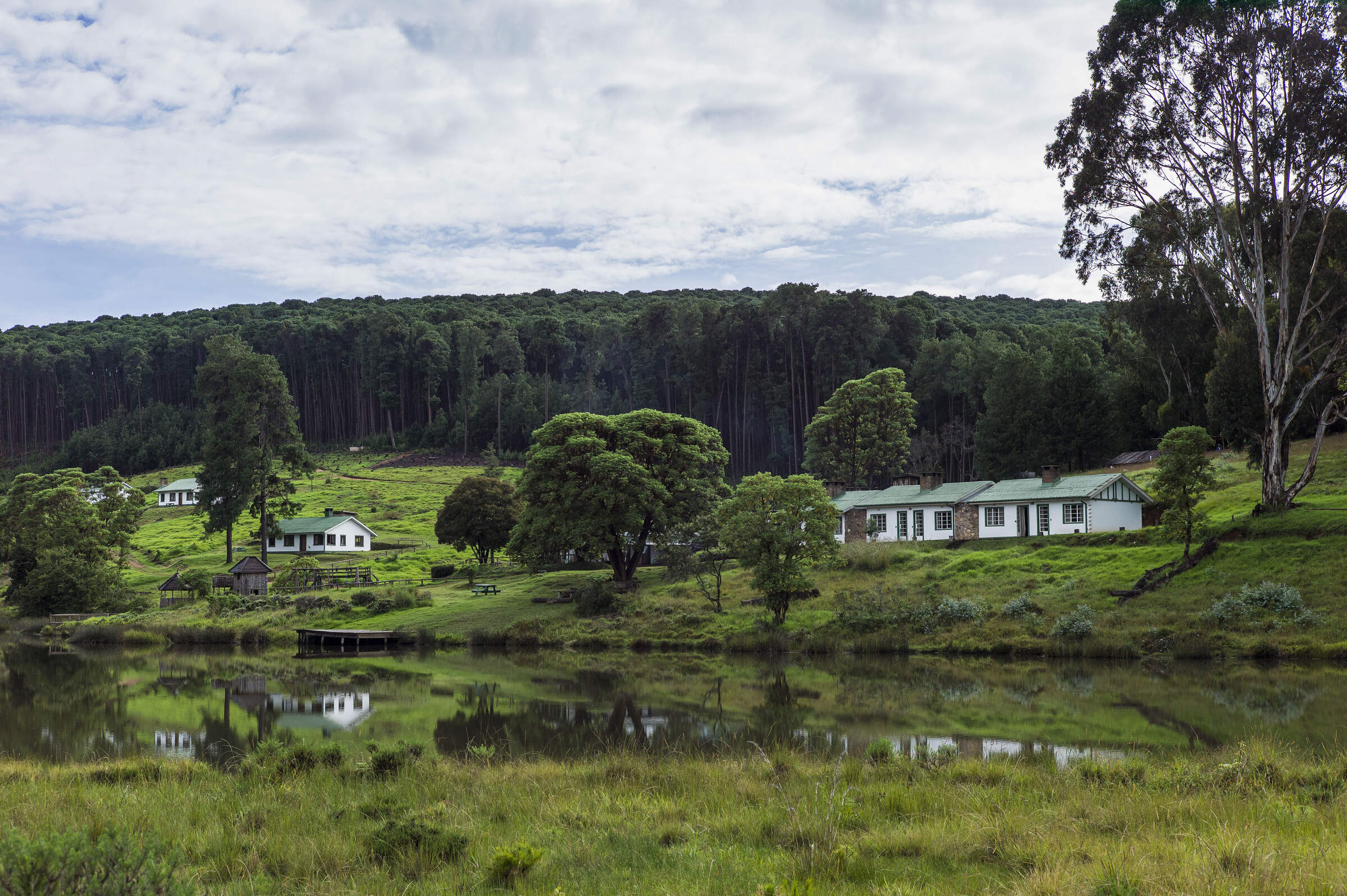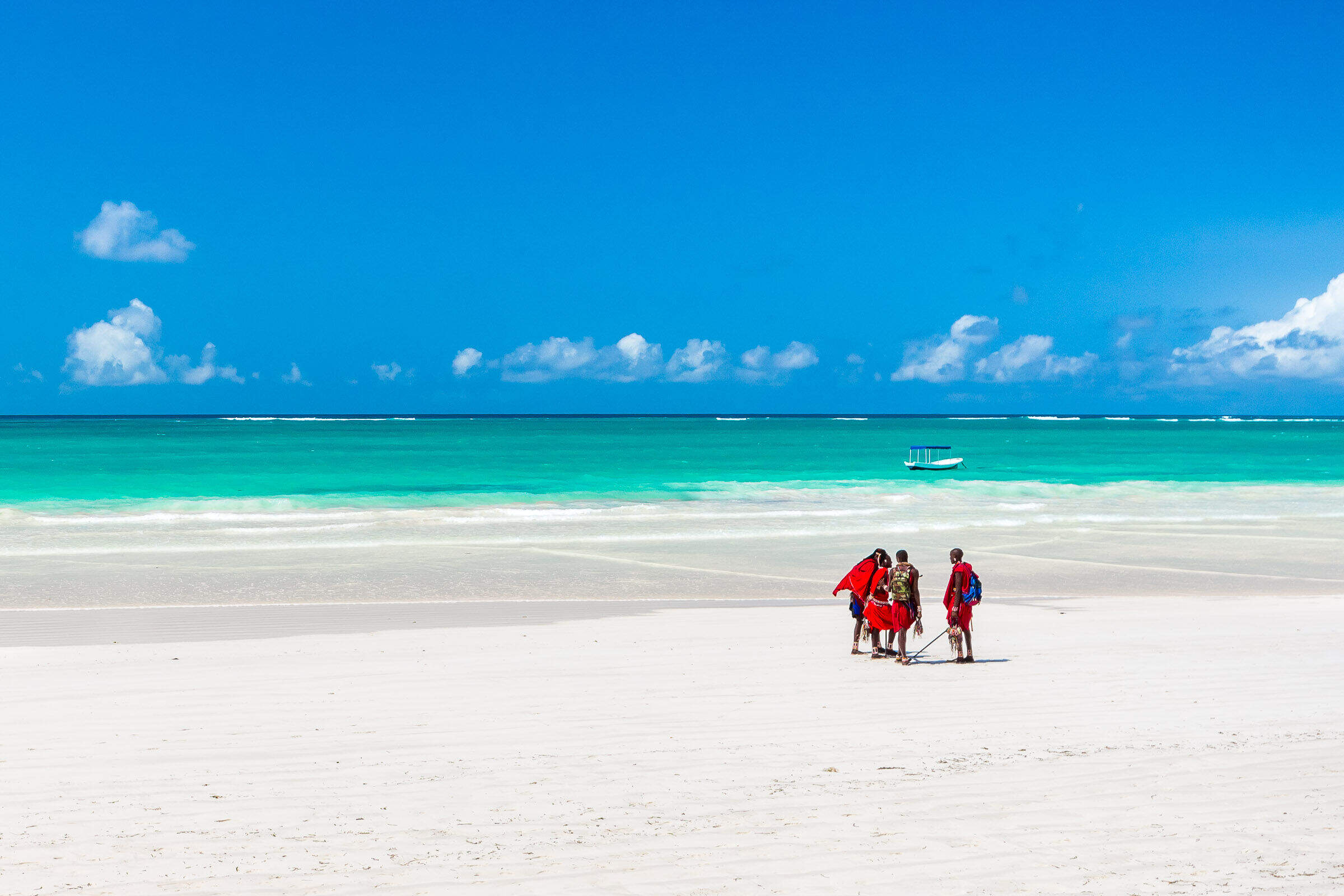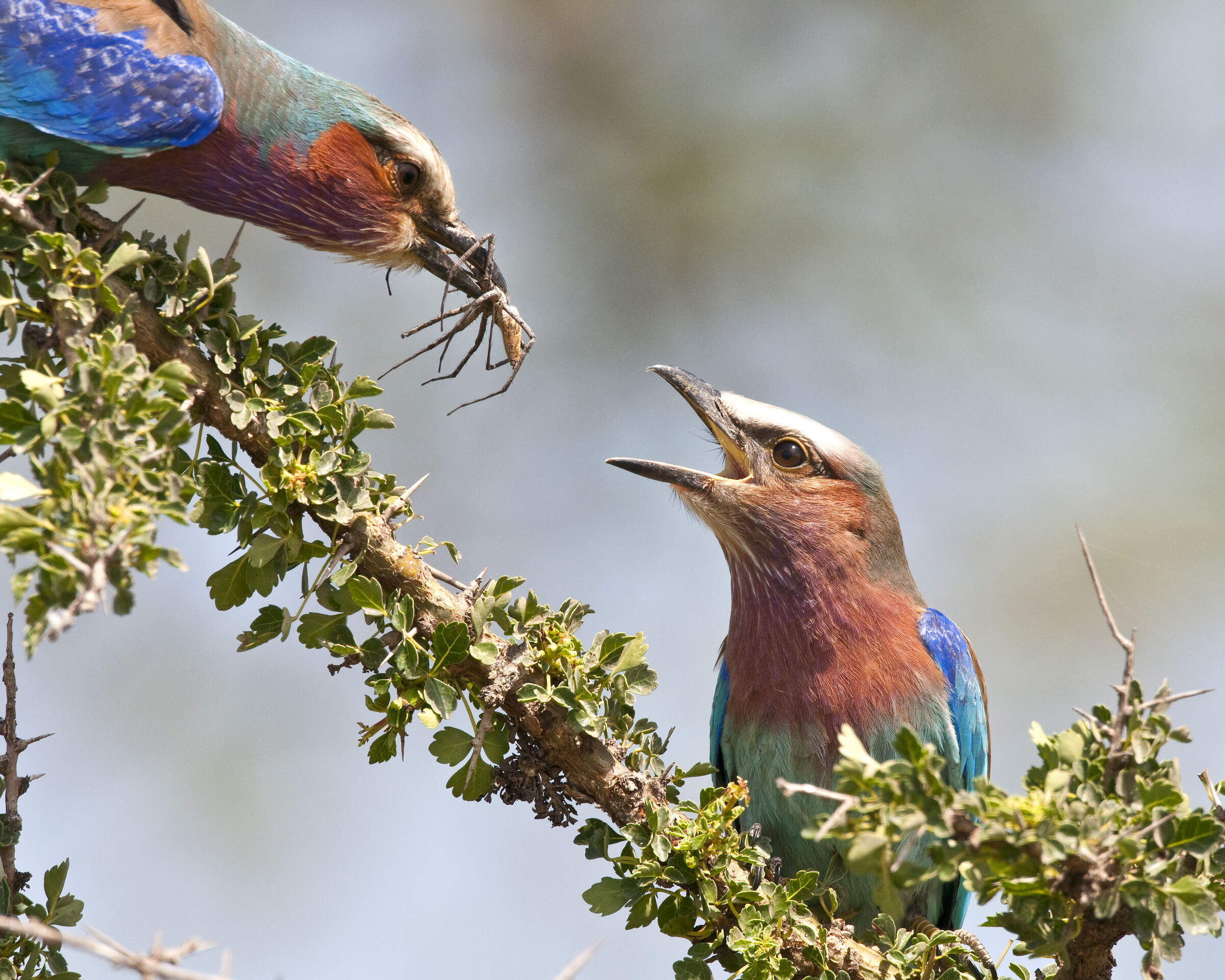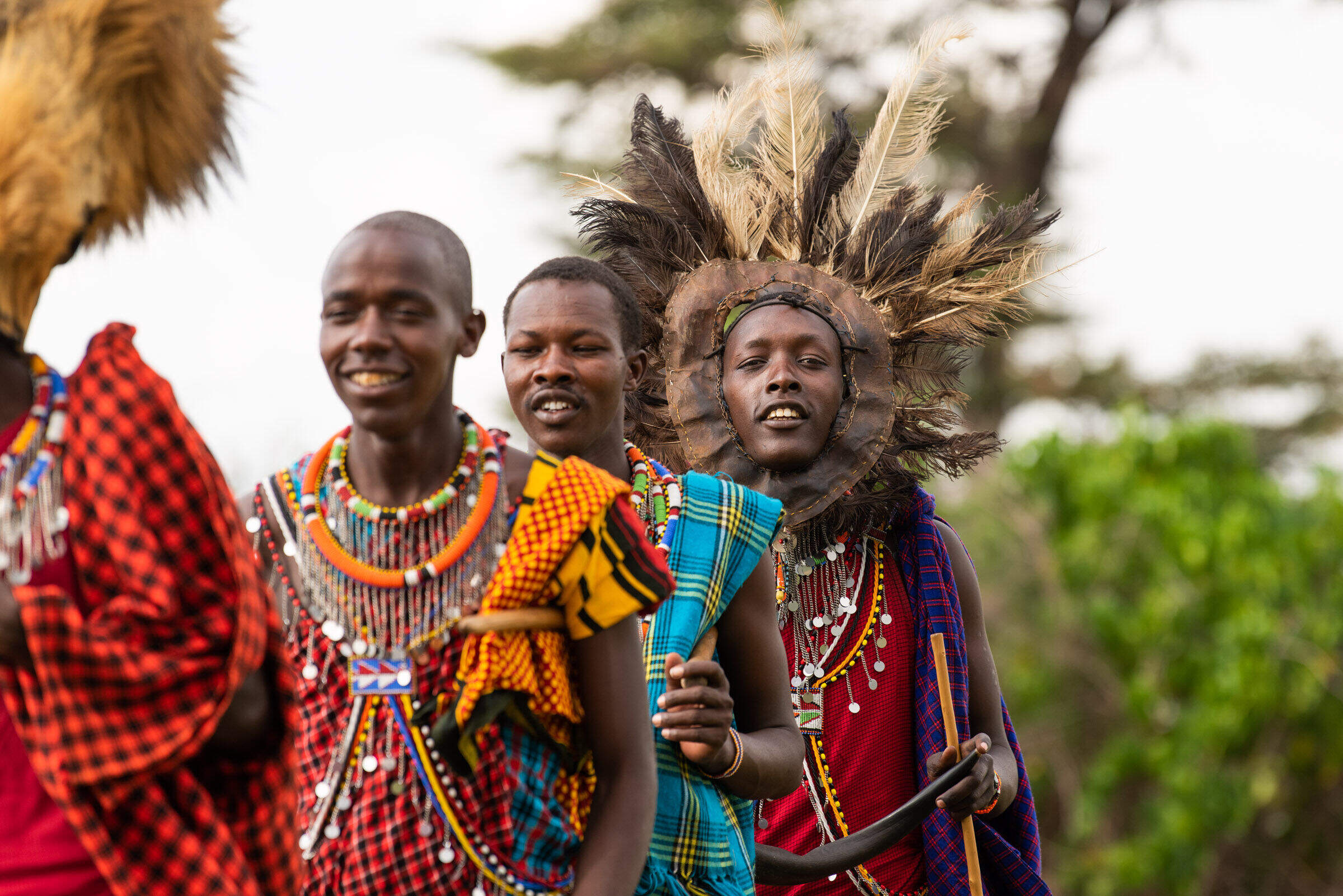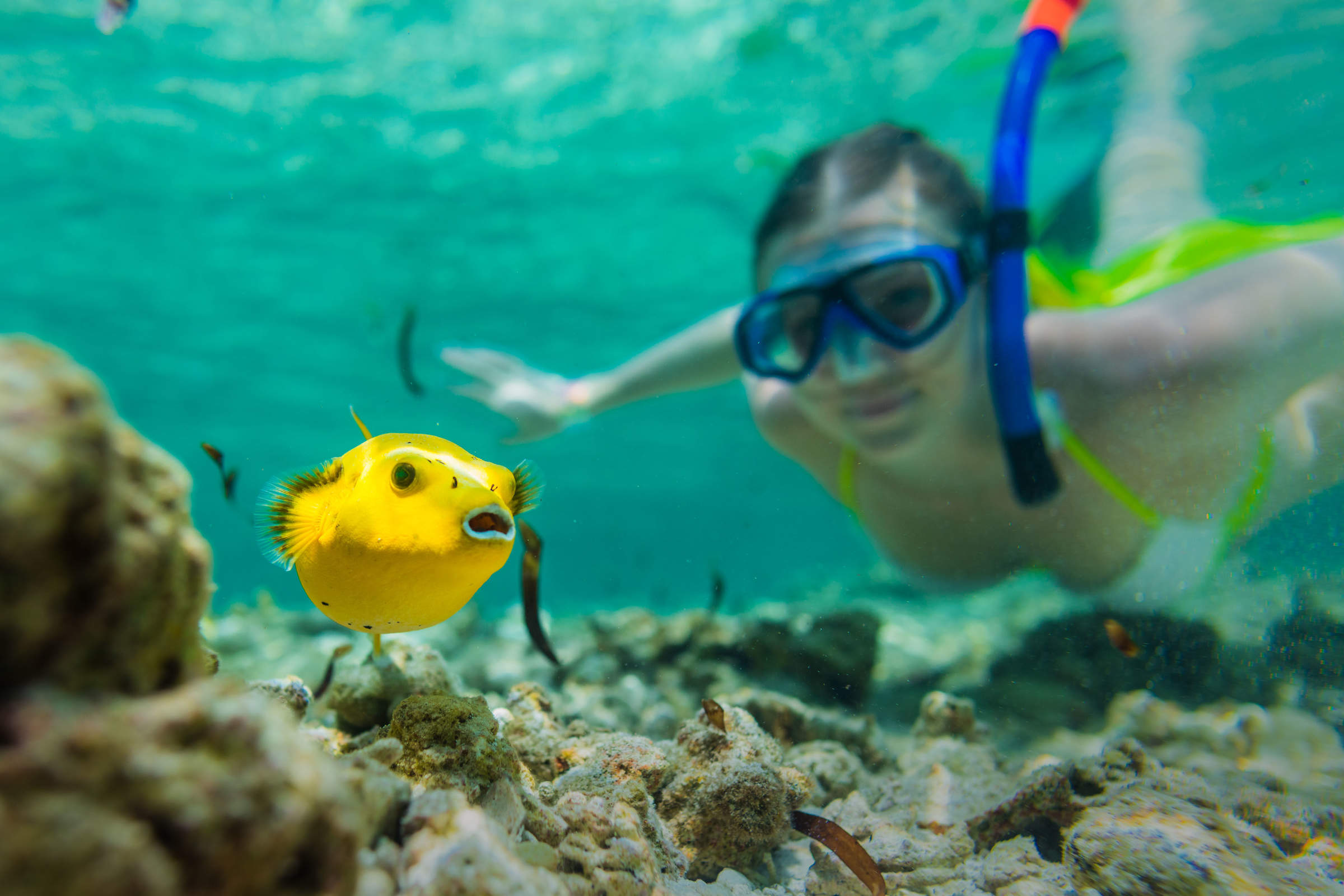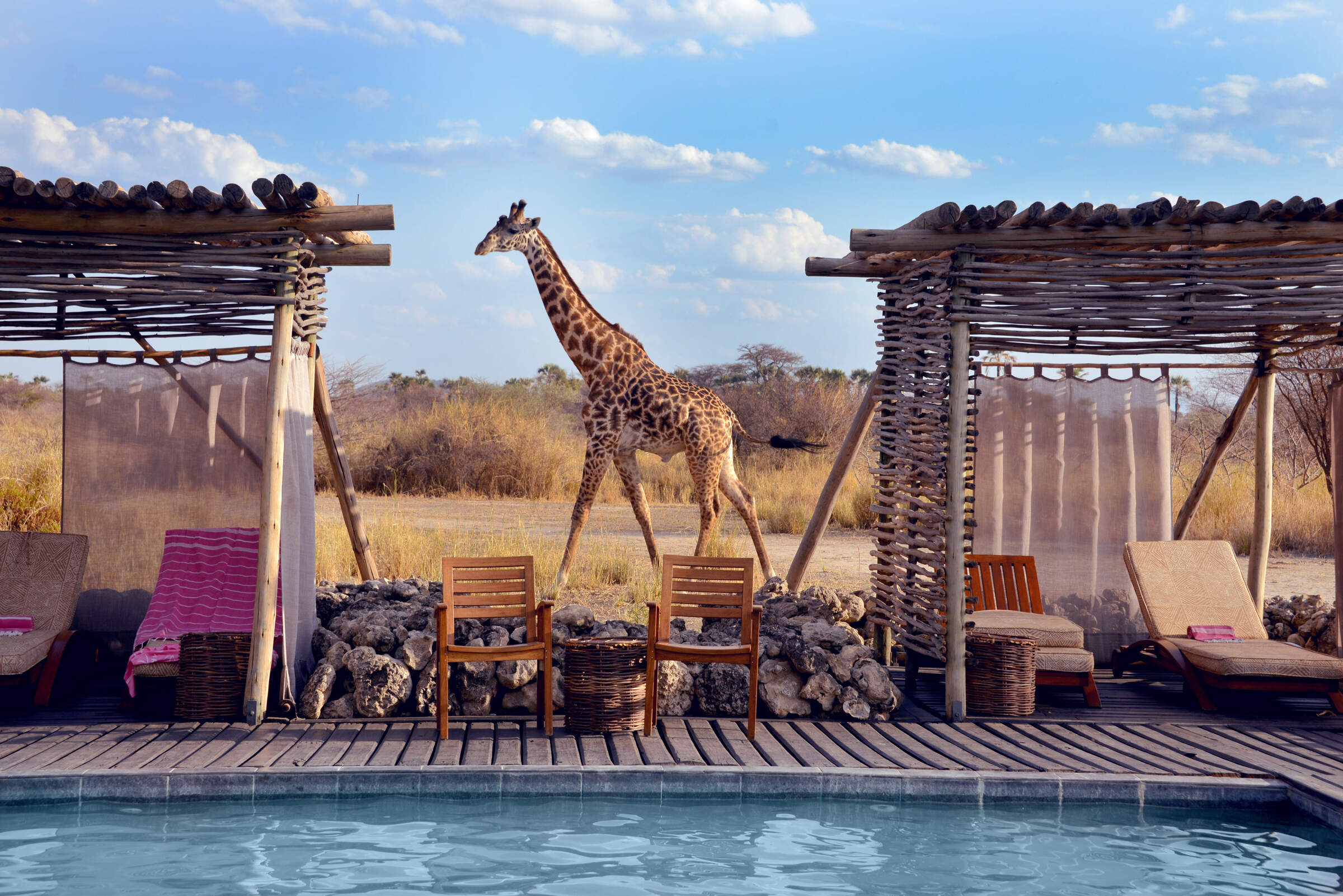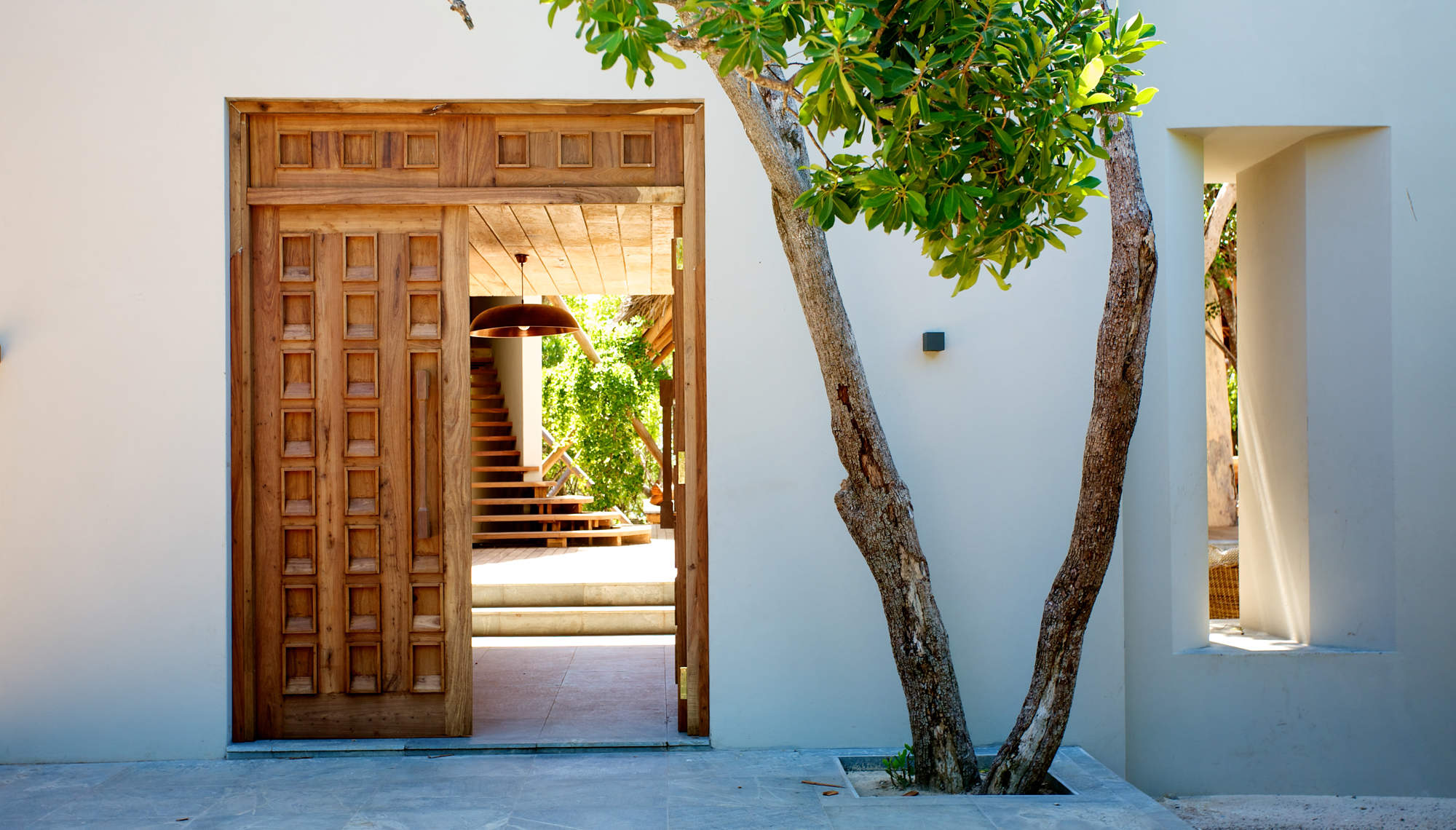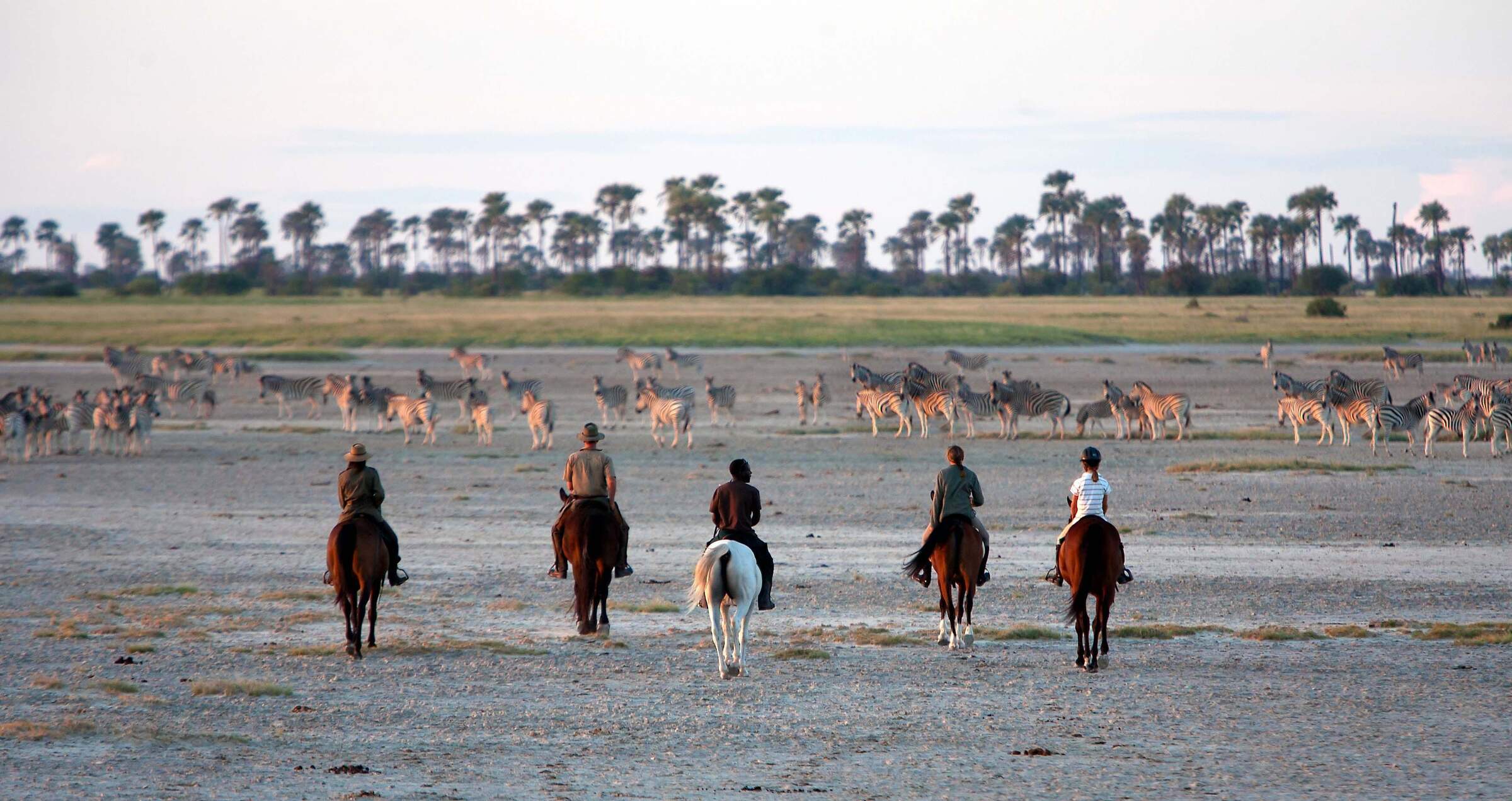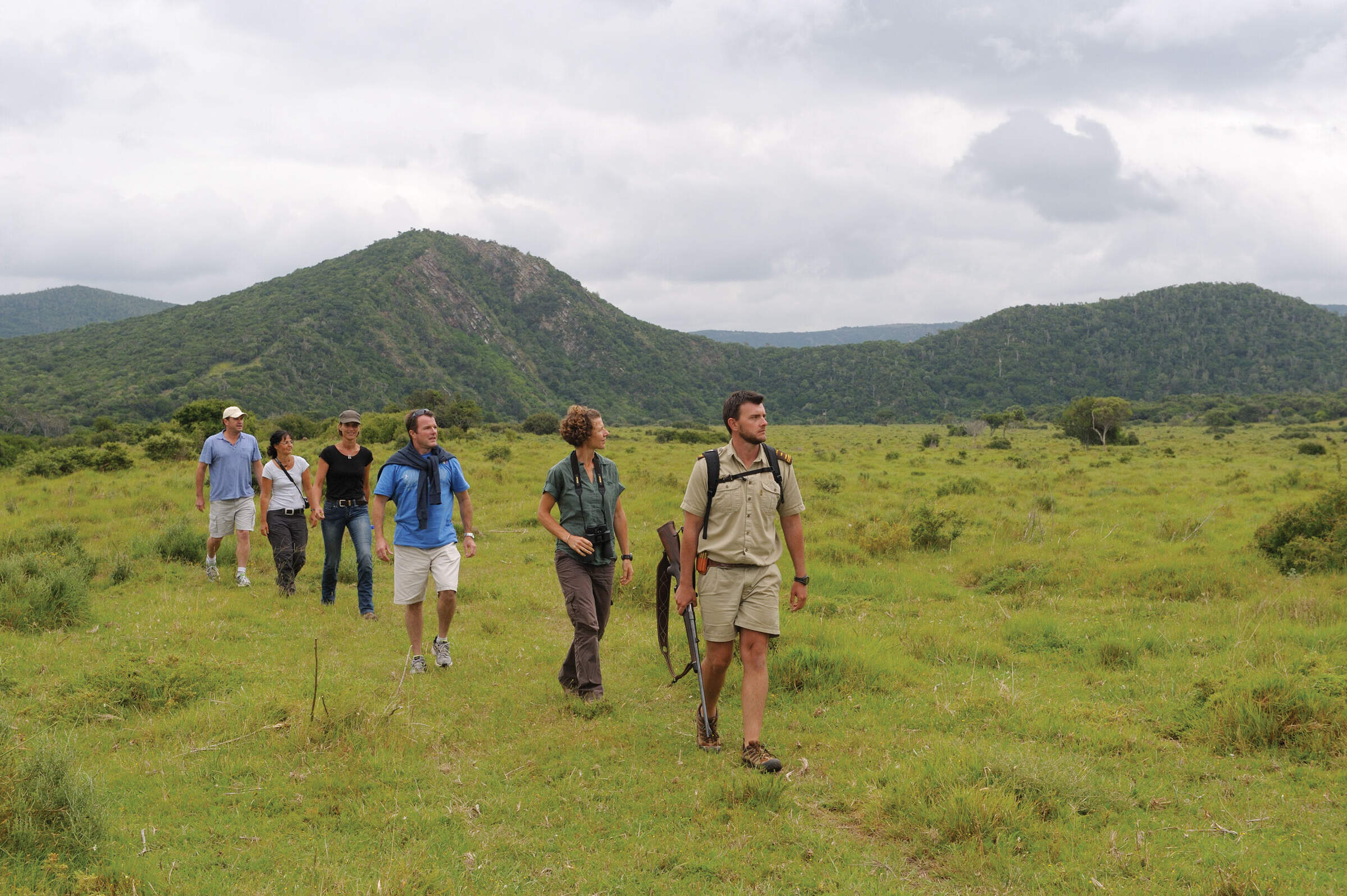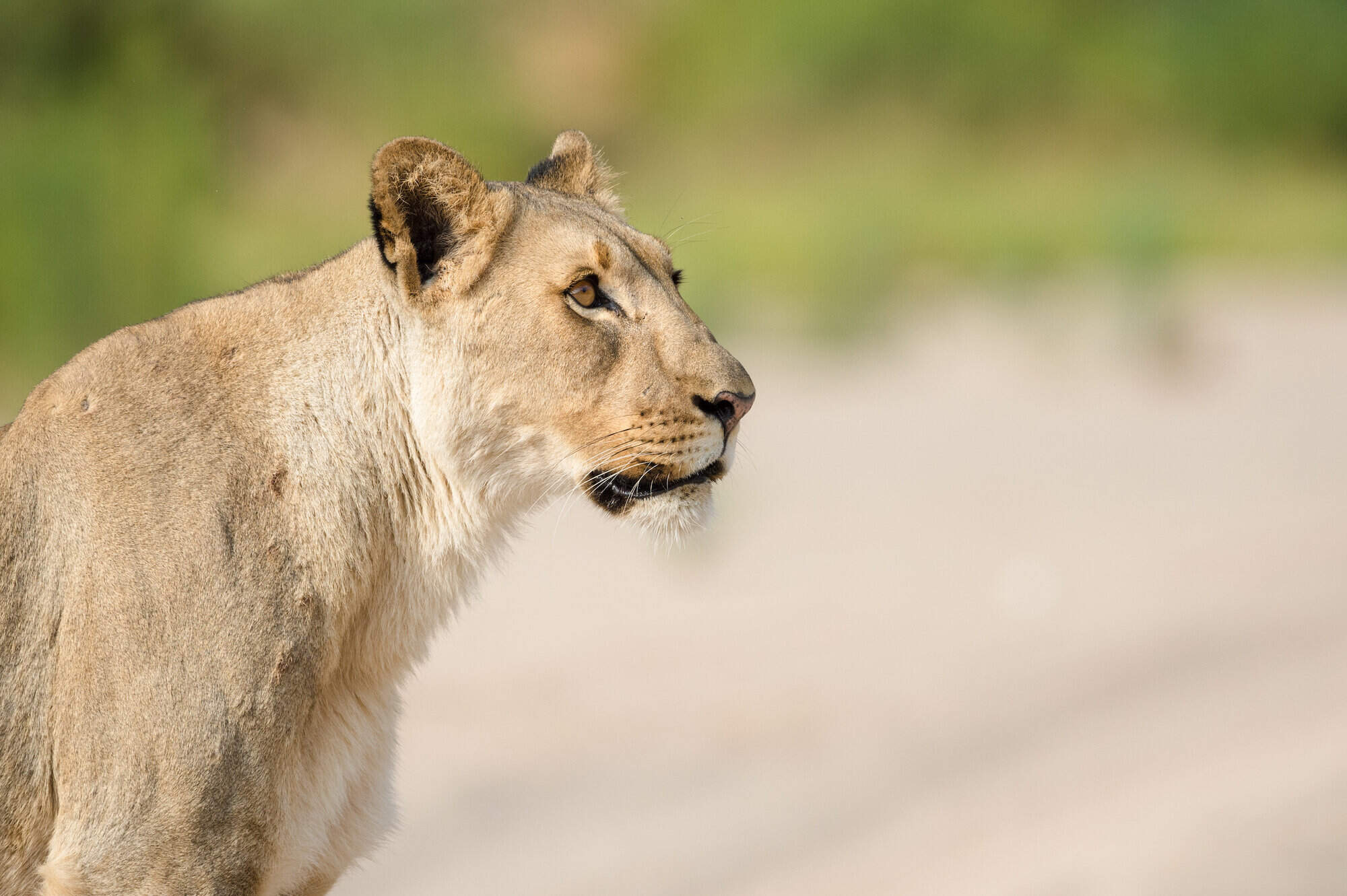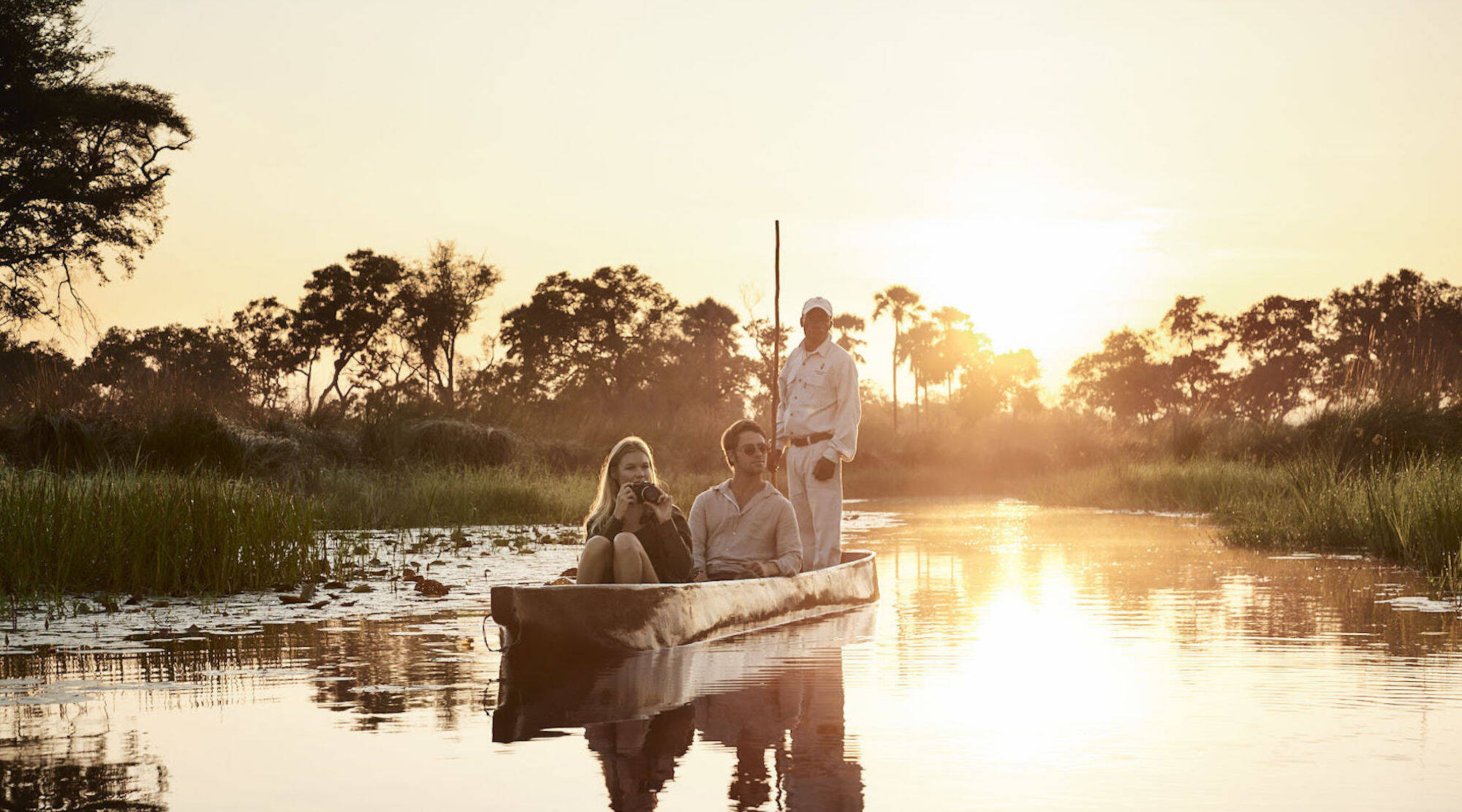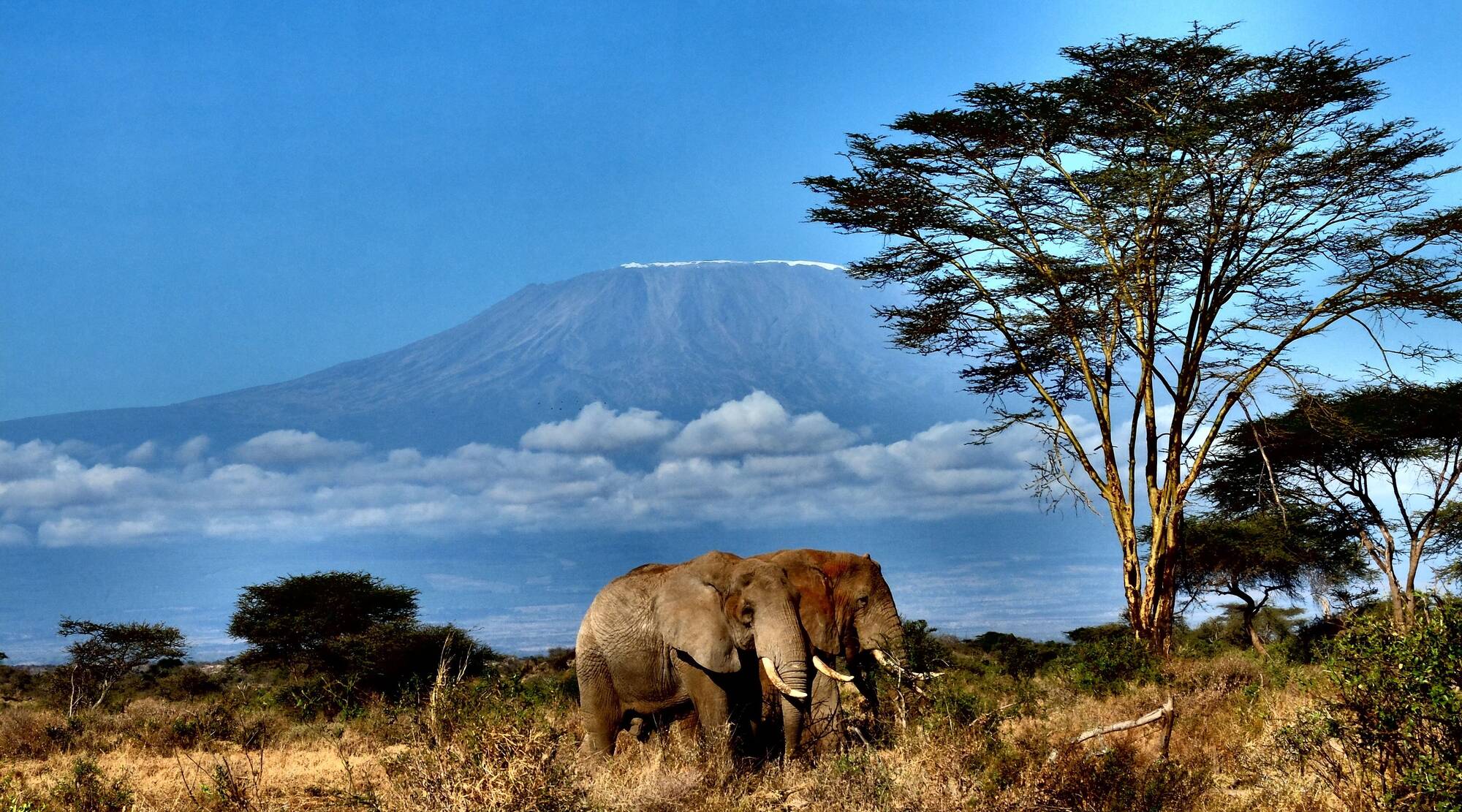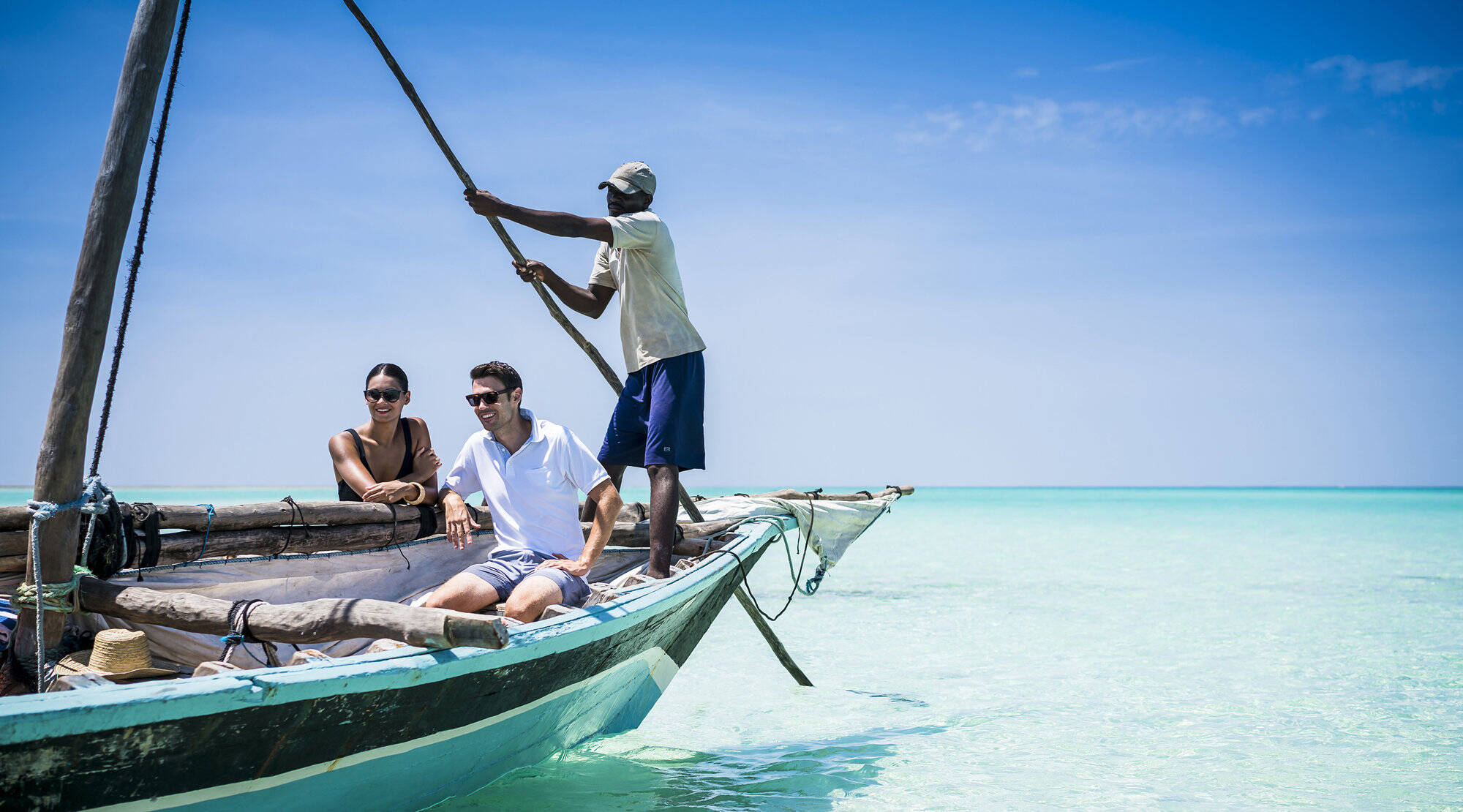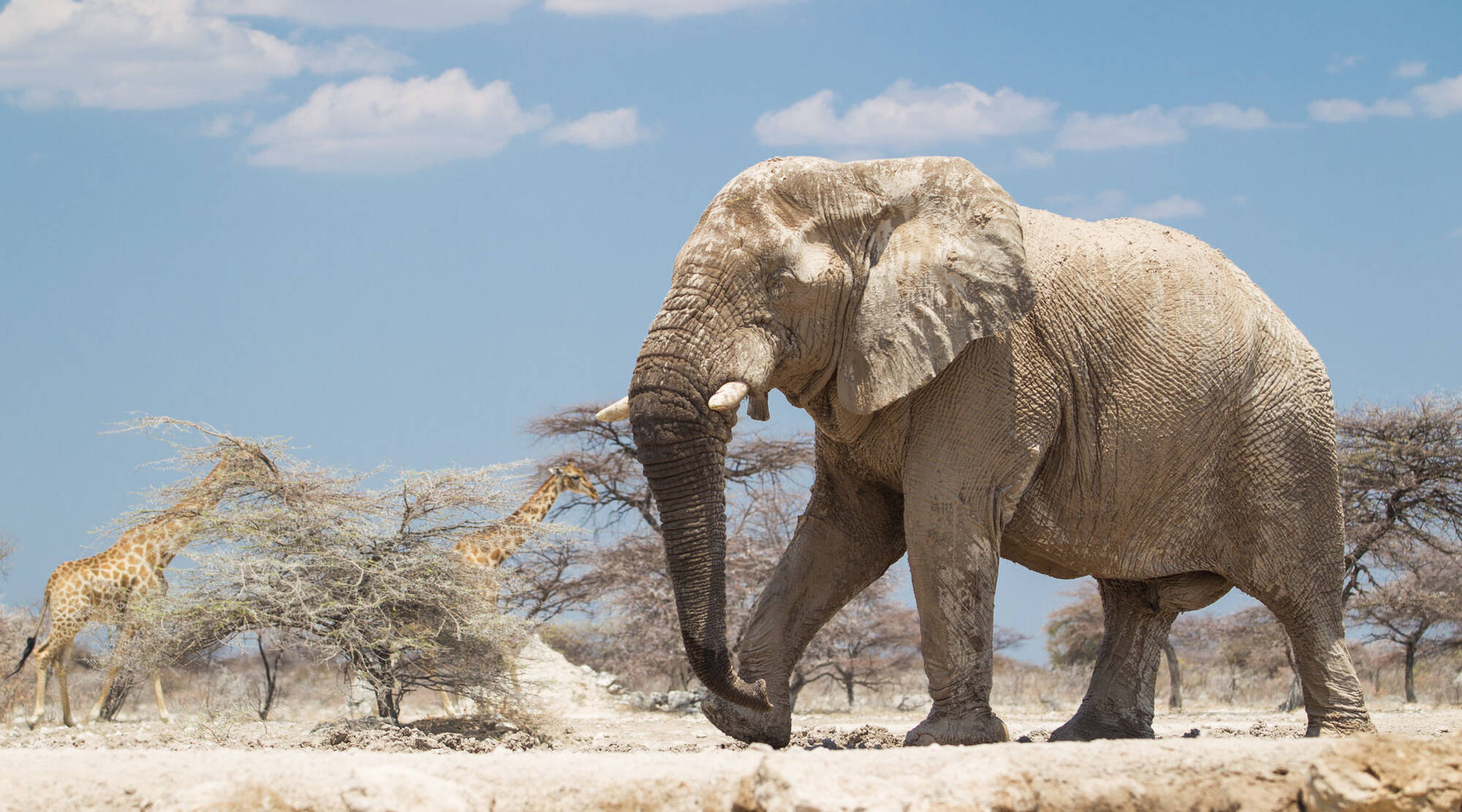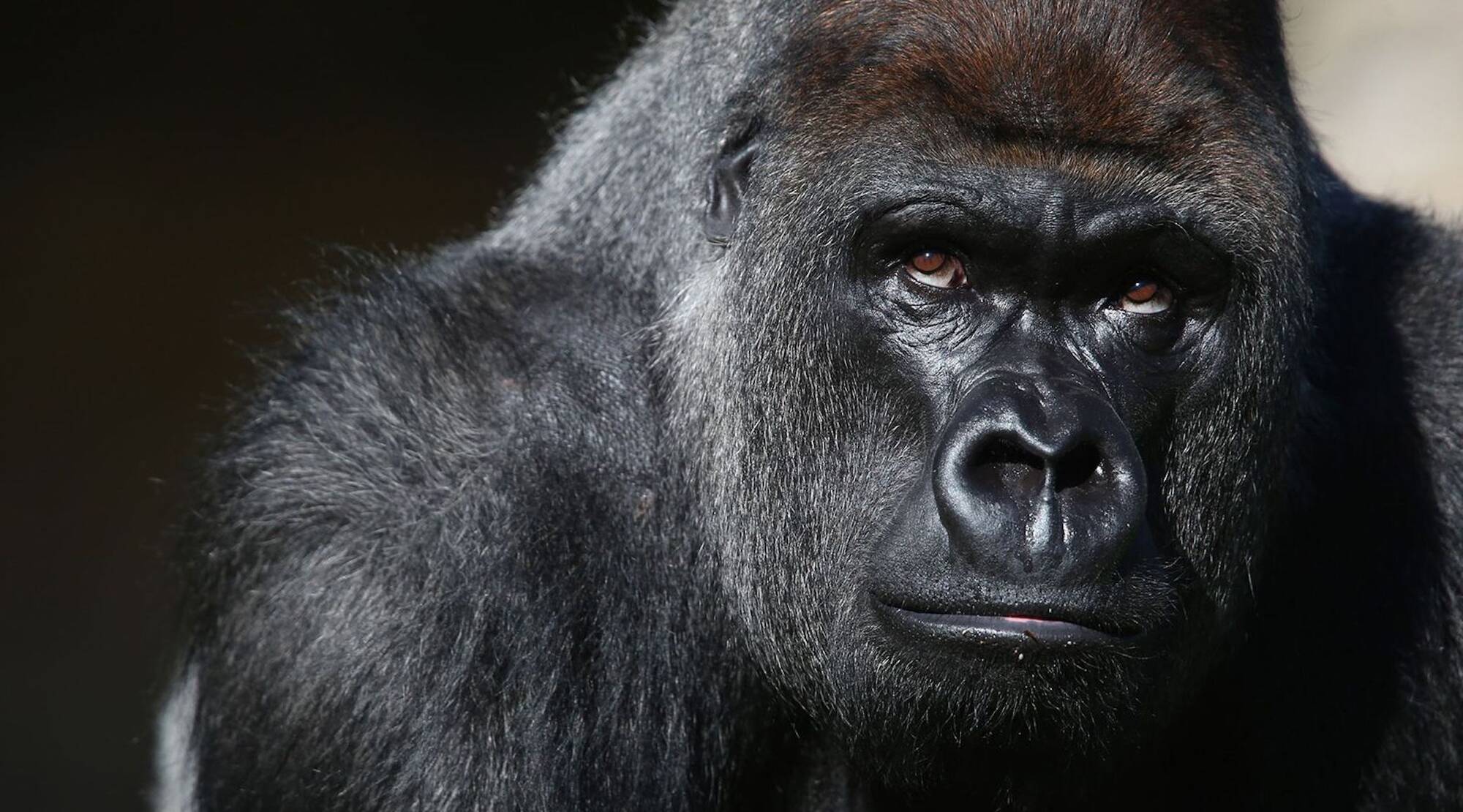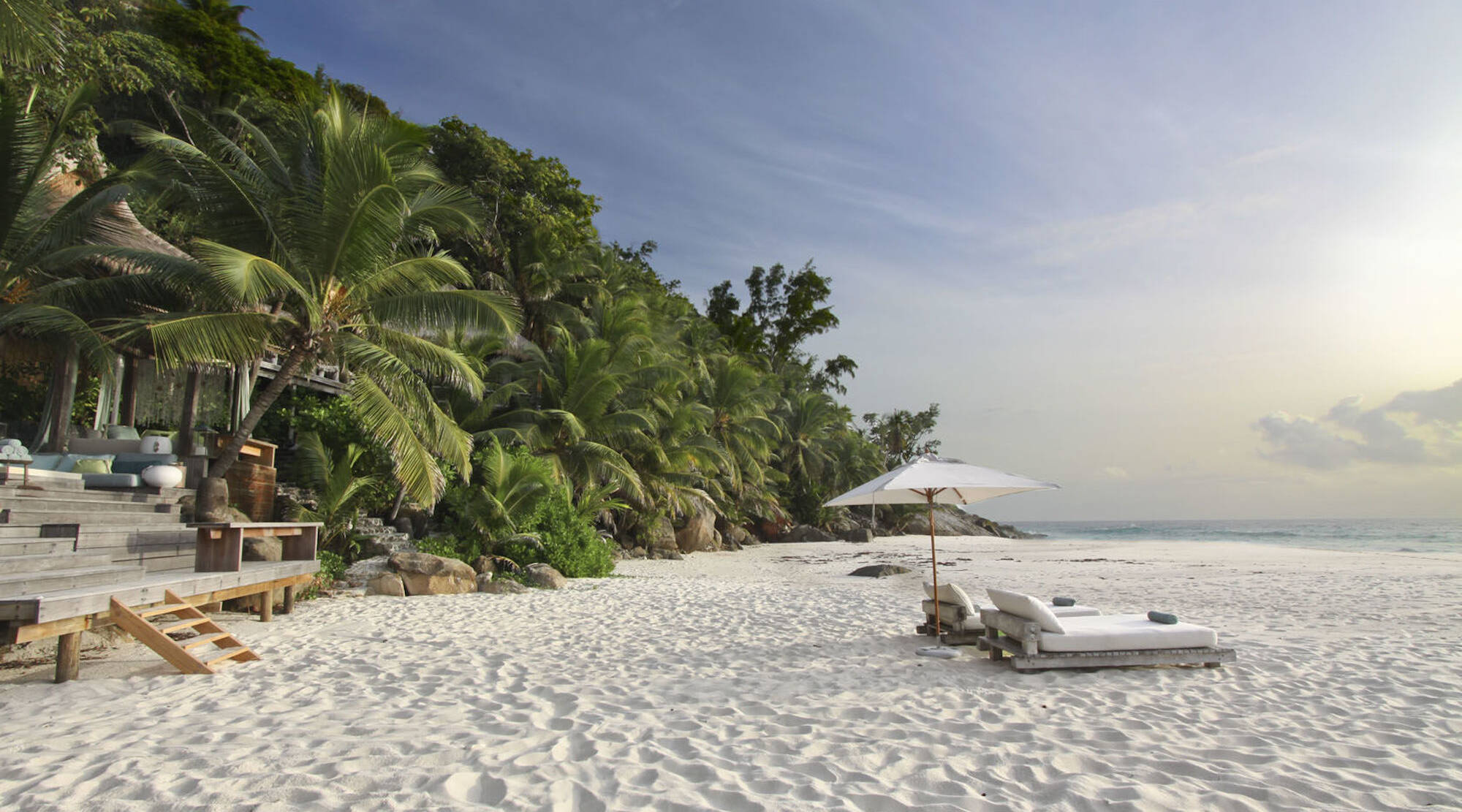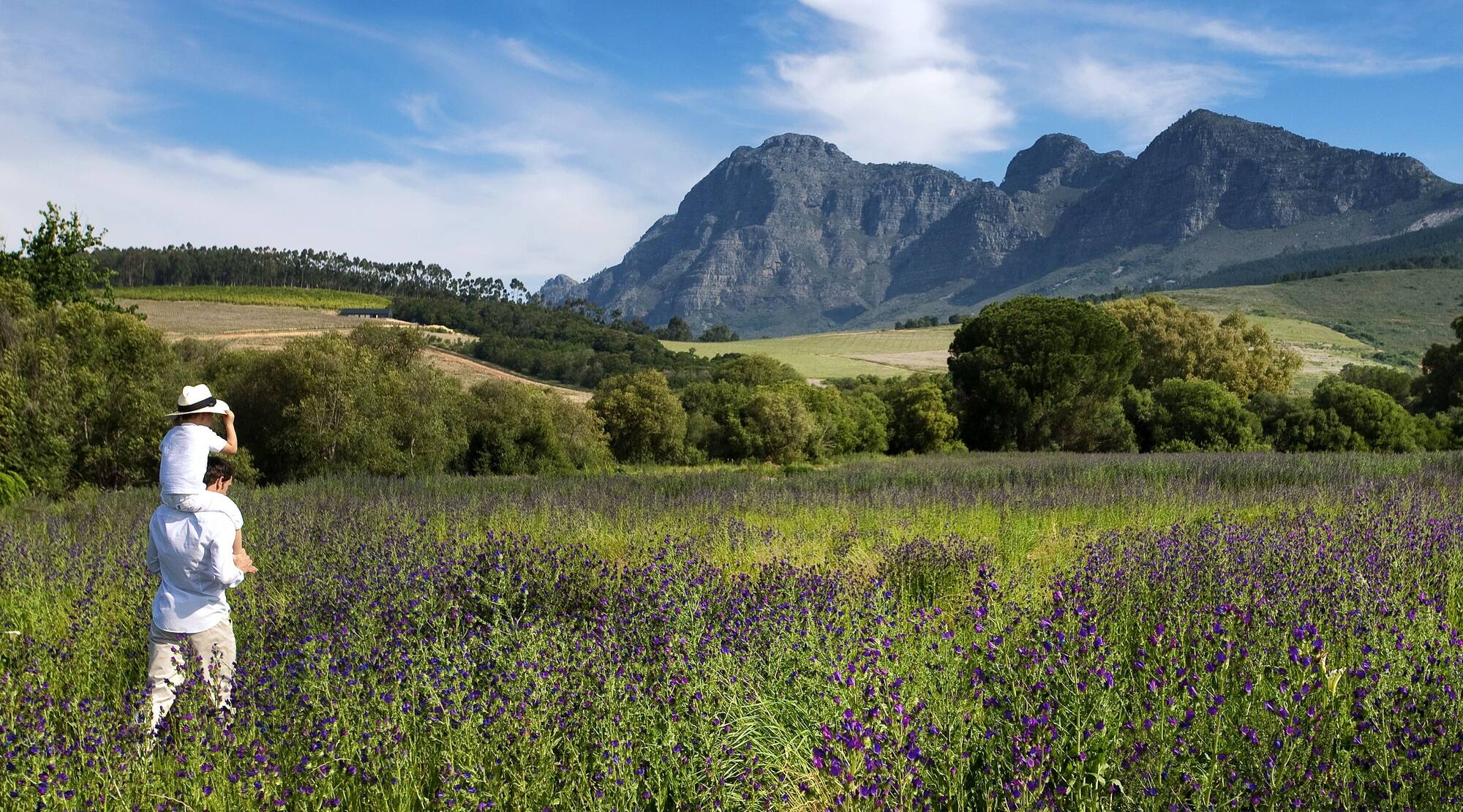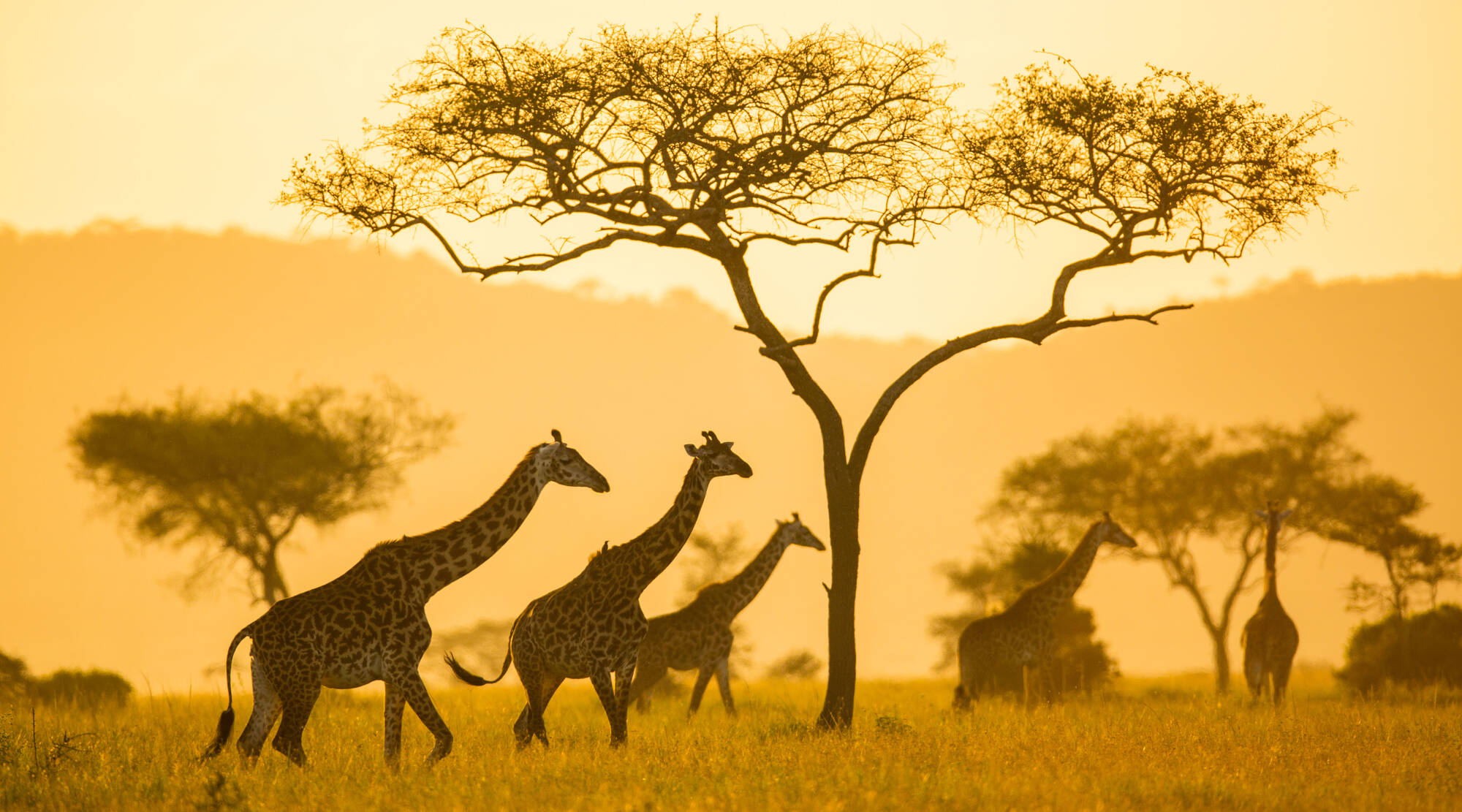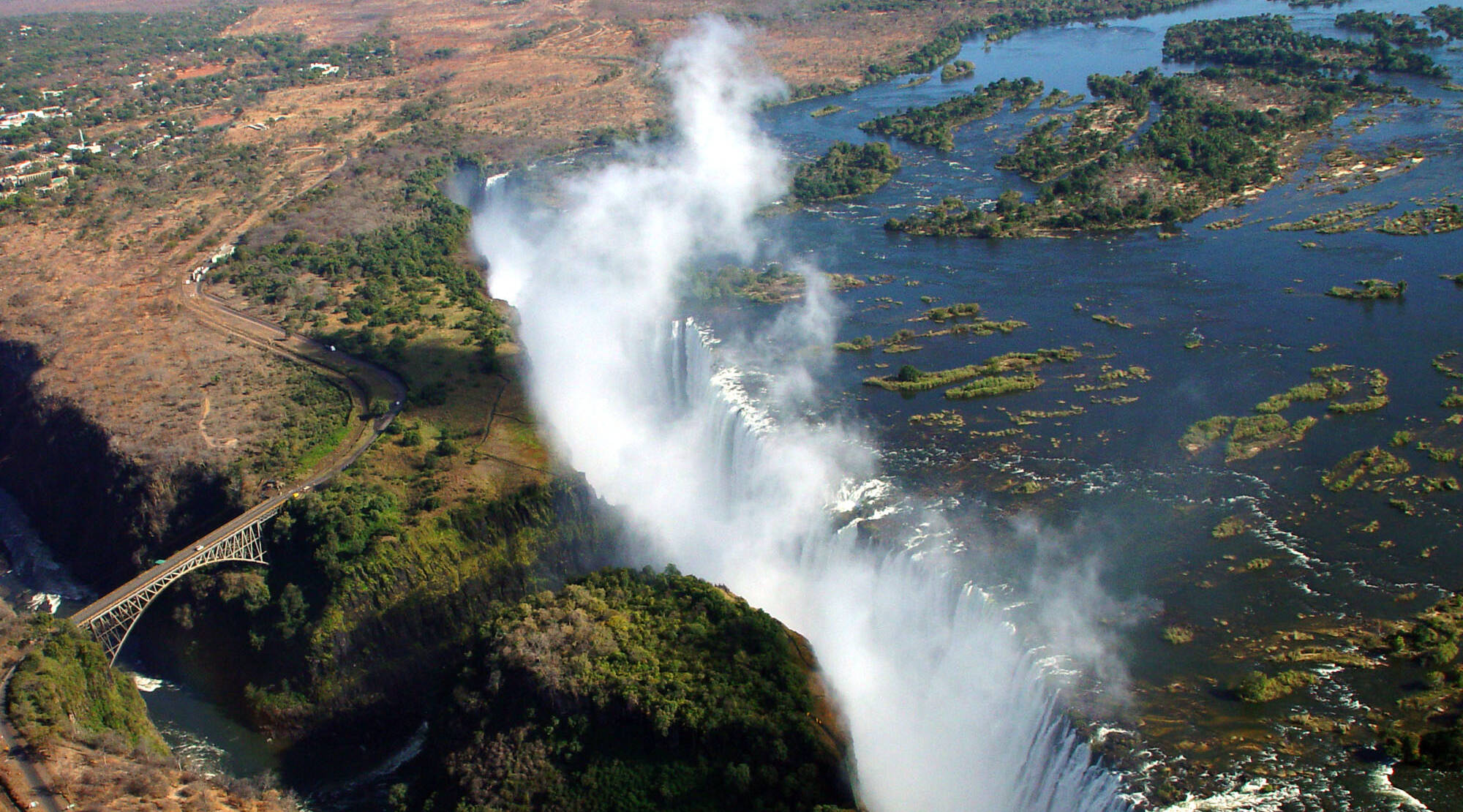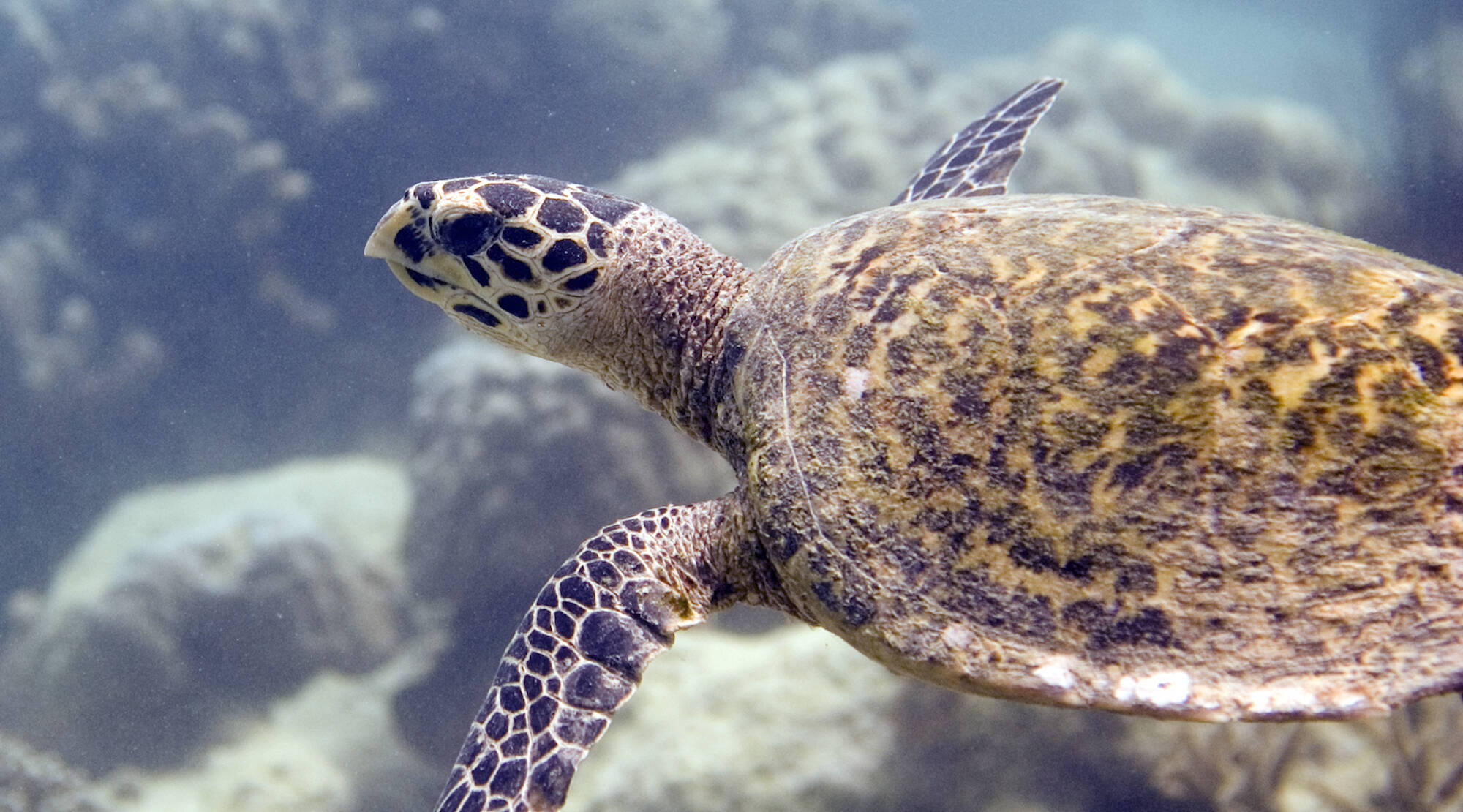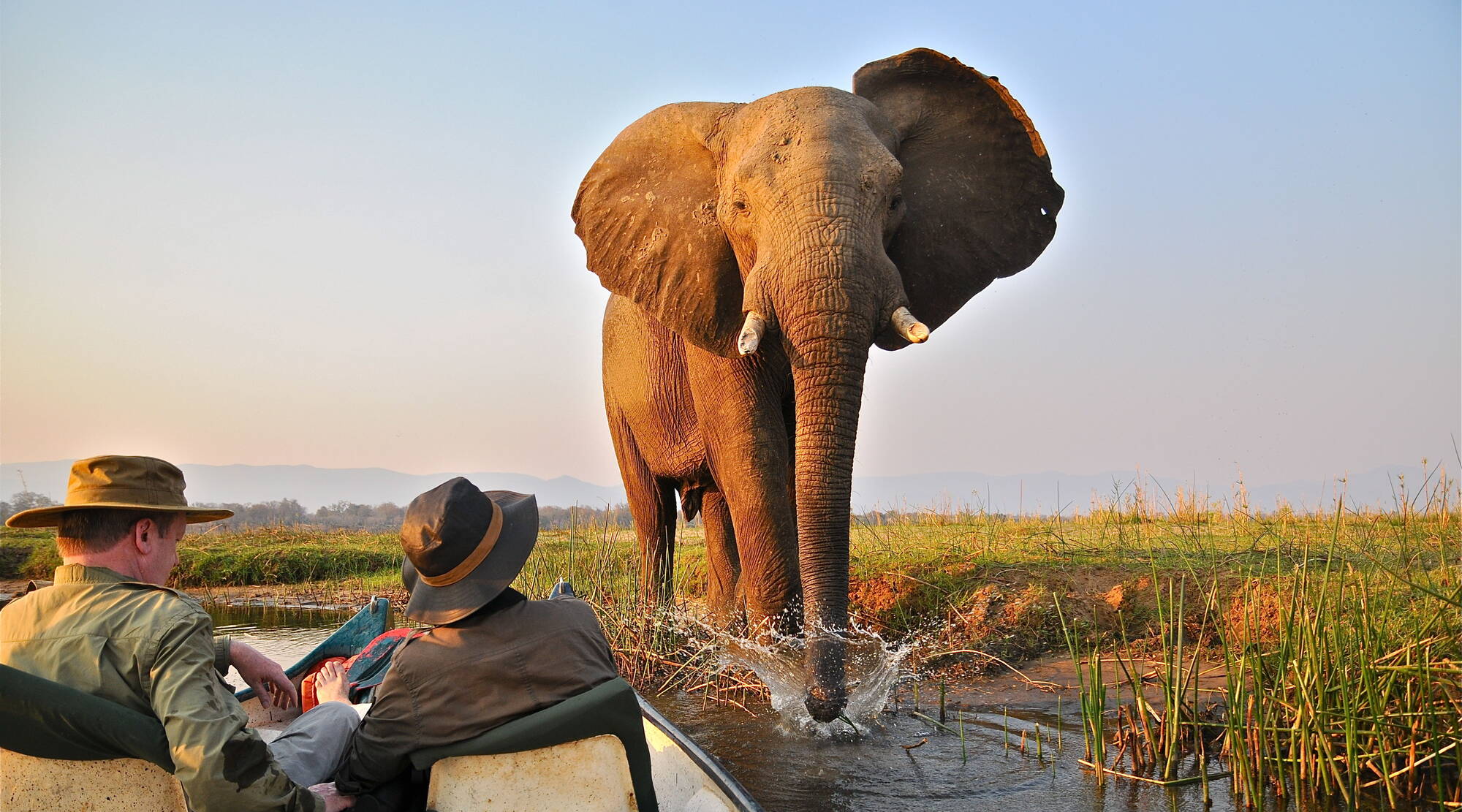Malawi safaris and holidays
At the foot of the African Rift Valley, Malawi’s image is often defined by the translucent waters of Lake Malawi.

Stretching to almost 600km, the lake runs like a backbone down the country. Children play along the lakeshore, the warm sand lapped by crystal-clear waters. Beneath the surface, fresh-water cichlids abound, as in a huge natural aquarium: a must for curious snorkellers.
Islands dotting the lake are a magnet for adventurous kayakers, while further afield, the unexpected treasures of Likoma Island, with its imposing Anglican cathedral, reward a leisurely boat trip.
Spreading out from the lake, fertile soils form rolling farmlands, and towering above are the mountains: three high plateaux whose lush wilderness attracts the discerning visitor to walk and hike in near exclusivity.
In this diverse environment, wildlife abounds. Hippos and crocs are in their element in the tropical Shire River as it flows alongside Majete Wildlife Reserve and on through the bird-rich Liwonde National Park – both now home once again to the “big five”. Equally good for birding is the high-altitude Nyika Plateau, while the rugged Nkhotakota is an emerging “must” for wildlife enthusiasts.
Throughout the country, Malawi’s attractions are intrinsically bound up with its natural beauty. This is a place to explore at leisure: on foot, by canoe, by sailboat. To marvel at waterfalls in the wilderness. To interact with a genuinely welcoming people. Perhaps simply to stop and unwind. “The warm heart of Africa” is a fitting description.
Speak to one of our Experts to start planning your dream Malawi safari.
Malawi: the key destinations
For many, the stand-out is Lake Malawi, one of the largest lakes in the world and home to hundreds of species of colourful cichlids, many endemic to the lake. Fringed by soft, sandy shores, it’s a mecca for snorkellers, divers, kayakers and – of course – beach lovers.
Arguably the best place for a traditional safari in Malawi, Majete Wildlife Reserve is a real conservation success story and here both driving and walking safaris can take you in search of the “big five”.
More established is the lush, tropical Liwonde National Park, which lines the Shire River – a languid waterway patrolled by hippos and crocs. Elephant roam the banks, and the birdlife is prolific.
Similarly popular with birders – and hikers – are the highlands of Nyika National Park, a refreshing haven after a hot safari, while Nkhotakota Wildlife Reserve appeals especially to adventurous travellers looking for a wildlife haven which is, as yet, seldom visited.

Lakeshore
7 places to stay
Tucked into secluded coves or built on rocky islands there are plenty of places to stay on Lake Malawi. It is ideal for a relaxing beach stay after a safari.

Liwonde
3 places to stay
Malawi's wildlife areas are resurgent, with significant reintroductions and intensive conservation efforts. If you are looking for game viewing close to Lake Malawi, then Liwonde National Park is ideal.

Nyika Plateau
2 places to stay
The Nyika National Park protects a large area of rich rolling grasslands, noted for endemic orchids, heathers and wild flowers, as well as roan, eland and other plains game.

Likoma Island
2 places to stay
Likoma Island in Lake Malawi offers sandy beaches and secluded coves with some of the best snorkelling and diving in Malawi. It also has one of Africa's largest cathedrals.

Lilongwe
2 places to stay
Lilongwe is the capital of Malawi, and is usually used as an overnight stop . Most travellers will pass through here at least once on their way to safari or beach.

Blantyre
1 places to stay
The capital of Malawi's Southern Region and the country’s financial and commercial centre, Blantyre is usually a one night stop for flight connections from the south of the country.

Malawi Interior
1 places to stay
Malawi's interior covers a large area although we feature relatively little here. The Zomba Plateau is a real highlight with stunning scenery, forests and waterfalls.

Majete
1 places to stay
This large, rugged reserve has been recently regenerated though intensive animal reintroductions and conservation work; it's Malawi's most interesting wildlife area and home to the Big Five.

Nkhotakota
1 places to stay
Nkhotakota Wildlife Reserve is Malawi’s oldest, largest and least-developed wildlife reserve. However, recent intensive conservation work and animal translocations is bringing new life to this reserve.
Our top ten Malawi holidays
All our holidays to Malawi are tailormade; these are just our suggestions to help you decide where to go.
For many travellers, the perfect combination is to spend a few days on safari, then to finish your trip by the clear waters of Lake Malawi – snorkelling, sailing or simply relaxing on the beach.
For others, no trip to southern Africa would be complete without seeing the majestic Victoria Falls, which can fit in well with Zambia's premier safari destination, South Luangwa National Park. Still others want the luxury of focusing on Likoma Island for a few days, or hiking in Nyika, or .... For such a small country, Malawi has plenty of options.
Look through our suggestions for trips below, then contact us and let us help to create a Malawi holiday especially for you.
Our travellers' most recent reviews of their Malawi holidays
Many of our travellers take the time to send us feedback on their trips to Malawi and other countries: something that is very important to us.
All of these reviews are published in full and unedited on our website. See all 97 Malawi holiday reviews here, or click on a card below to read one of our most recent reviews in full.
This feedback helps us to keep bang up to date, and is valuable in helping other travellers to plan their trips. It is also read with interest by lodges in Malawi, who appreciate constructive feedback that is based on personal experience.
Our travellers' wildlife sightings across Malawi
A wildlife safari is at the heart of many trips to Malawi, and many travellers keep records of their sightings, from elephant and hippo to lion and zebra.
On their return, they share these records with us, and its then included on this site. Thus we have built up a unique picture of where and when you’re likely to see Malawi’s key wildlife species. This is truly citizen science in action.
For much greater detail of what you’re likely to see from individual camps and lodges, take a look at our interactive map showing the the best locations for wildlife species in Malawi.

100% success

87% success

86% success

75% success

74% success

58% success

56% success

44% success

35% success

33% success

22% success

17% success

9% success

0% success

0% success

0% success

0% success
Where to find Malawi’s key wildlife species
Malawi may not spring immediately to mind for a safari, but since the turn of the millennium, the wildlife has steadily been improving – and so have our visitors’ sightings.
You can find the results of these in many ways across our website. Check out our wildlife sightings and reviews for individual camps and reserves; take a look at our maps or individual holiday pages; or see our dedicated wildlife pages.
Whether you’re in search of lion or leopard, zebra or the beautiful sable antelope, take a look at our data and discover the best places to seek them out.
For a map of the best camps and lodges for sightings of a given animal species, click on a card:
Which is the best month to visit Malawi?
The best time to visit Malawi depends on many things, including interests, the length of a visit and the reasons for travelling. One person's top time to go to Malawi can be another person's worst!
A Malawi safari is generally best between May and October, when it’s mostly dry. The cool temperatures of June and July rise in September and October, notably in low-lying areas such as Liwonde National Park and along the shores of Lake Malawi.
Typically the rains start around November, but this can still be a good time for a safari – and it’s less busy than during the northern-hemisphere school holidays. This season is also excellent for birdwatching, although many camps close around Christmas until April or May.
Lake Malawi is an all-year-round destination, but can be at its most appealing between September and April, when temperatures are generally warm and snorkelling is at its best.
Click on the months below; see rainfall and temperatures here.
Jan
Feb
Mar
Apr
May
Jun
Jul
Aug
Sep
Oct
Nov
Dec
Malawi in January
January is the middle of the rainy season in Malawi. You can expect heavy rain for a few hours most days with some occasional flooding. It is generally hot and wet, with temperatures reaching over 30ºC.
The landscape is green and lush and the air crystal clear. In the game reserves the thick bush can restrict animal sightings, making game viewing more challenging. With the abundance of water available the wildlife disperses and is no longer concentrated around water sources. However, many species give birth at this time of the year and it is a great time for birding.
Although the majority of the safari camps are open at this time, most of the beach lodges along the lakeshore close in mid January.
- Peak of the rainy season with thundershowers most days
- Many animals are with young & birdlife is at its most spectacular
- Bush lush & green; animals dispersed so game viewing more difficult
- Air is clear & dust-free, which is great for photography
- Majority of lakeside beach lodges are closed second half of January
Our view
This is not a great time to visit
Weather in January
Malawi in February
February is generally the wettest month and still the heart of the rainy season, with dramatic thunderstorms interspersed with sunny spells.
Expect some flooding and the ground to be waterlogged. The thick bush still affects game viewing on land, and walking safaris are limited, but game viewing by boat on the swollen Shire River, in both Liwonde National Park and Majete Game Reserve, is a highlight. Birdlife is also at its most spectacular at this time of year.
Visitor numbers and costs at the few open camps are low. Most of the beach lodges remain closed, with only one or two open all year.
- Peak of the rainy season with thundershowers most days
- The bush feels alive; birdlife is at its most spectacular
- Good for photography but poor game viewing
- Few tourists, so rates usually at their lowest
- Majority of lakeside beach lodges are still closed
Our view
This is not a great time to visit
Weather in February
Malawi in March
The rainy season is nearing the end in Malawi. The thunderstorms become fewer with sunnier days, but you can still expect some rain most days. March is one of the last of the summer months with temperatures still around 25–30ºC most days.
On safari the thick bush still restricts game viewing and walking safaris are limited too, with the larger animal species being quite elusive. On the plus side, migrant birds make the most of the abundant insect life. This time of the year is also great for keen photographers with the vivid green landscape and clear, dust-free air.
The beach lodges are also starting to open again around mid-March, following the rainy season.
- Expect to experience some rain most days
- The bush feels alive, with birdlife still a highlight
- Good for photography but game viewing remains poor
- With few tourists, rates generally at their lowest
- Beach lodges now open from mid-March
Our view
This is not a great time to visit
Weather in March
Malawi in April
April is a month of change in Malawi. The days start to cool down, rainfall decreases, and summer turns into autumn as the dry season approaches. Temperatures drop to around 25 ºC during the day with the evenings becoming cooler.
This is the tail-end of the green season and, after five months of rain, the landscape remains green and lush, with game viewing still a challenge. However, the birdlife is still great, and the improving weather attracts more visitors to both the bush and the beaches along the Malawi lakeshore.
- The temperatures are cooling down but still expect the odd rain shower
- Start of the dry season with mostly clear and sunny days
- Bush still green & lush: good for photography but not for game viewing
- Very few visitors, and still one of the cheapest times to visit
- The lakeshore beach lodges are now all open
Our view
A good time to visit, with pros & cons
Weather in April
Malawi in May
May is the end of summer and the first month of the dry season. There may still be the occasional shower, but clear sunny skies are becoming the norm. As winter approaches, daytime temperatures drop to a comfortable 20–25 ºC, but at night they’re down to around 10ºC, so warm clothing is advisable for early- morning game drives.
As the rain disappears the landscape starts to dry out. Although the vegetation is still thick, the game viewing starts to improve and walking safaris becoming more reliable. Birding is still excellent, too. Around the lakeshore, temperatures can be significantly warmer, making beach holidays popular at this time of the year. Yet visitor numbers remain low, making May one of the most cost-effective times to visit.
- Start of the dry season with mostly clear & sunny days
- Temperatures are mild along the lakeshore so good for a beach stay
- Bush still green & lush but game viewing improving
- Good for photography & great birdlife
- Very few visitors, & still one of the cheapest times to visit
Our view
A good time to visit, with pros & cons
Weather in May
Malawi in June
June is entirely in the dry season, and – along with May – can also be one of the coldest months. With no rain, clear skies and temperatures dropping to around 20–25ºC during the day, the nights can be cold, reaching around 10ºC. Warm clothing is advisable for early-morning and late-afternoon game drives.
The landscape remains lush, but the bush starts to die back significantly, bringing a marked improvement in wildlife viewing. This, along with cooler temperatures, makes June ideal for walking safaris. Temperatures around the lakeshore tend to be significantly warmer, so June is another popular month for beach holidays with higher visitor numbers.
- Well into the dry season with sunny days & cool temperatures
- Thick bush is dying back, & game viewing improves
- Increased visibility & cool weather perfect for walking safaris
- Mild temperatures along the lakeshore: good for a beach stay
- June is still low season : a popular time before high season starts
Our view
A very good time to visit
Weather in June
Malawi in July
July is the middle of the dry season in Malawi, with temperatures starting to pick up towards the end of the month. This makes July a good time for both safaris and beach holidays. Expect it to be pleasant during the day but still cold at night, especially at high altitude such as Nyika Plateau; blankets and hot water bottles are often provided on safari.
As the vegetation dies back, animals start to congregate around perennial water sources, making this one of the best times of year for game viewing.
July is also the start of high season and all the camps increase their rates to make the most of the improving game and the start of the international holiday period.
- Warm dry days with crisp cold nights
- Significantly improved game viewing
- No limit on walking safaris, with pleasant temperatures a plus
- Temperatures along the lakeshore ideal for beach and watersports
- Approaching peak season, so significant increase in costs
Our view
A very good time to visit
Weather in July
Malawi in August
August is well into the dry season with game concentrated around water sources and the safari season approaching its best. The landscape is changing from green to brown and the air is becoming drier and dustier. There is also a lot of smoke in the air as burning of trees and vegetation is prevalent in Malawi, so this isn’t the best time for photography.
Later in August the temperatures start to pick up, but early mornings and late evenings are still cooler – particularly out on open game drives where warm jackets, gloves and scarves are recommended. August is one of the most popular months. Pleasant weather and good game viewing attracts lots of visitors, and costs are correspondingly high.
- Warm dry days with crisp cold nights still the norm
- Game viewing at its best
- No limits on walking safaris, with pleasant temperatures a bonus
- Lakeshore temperatures remain good for beach and water sports
- Still peak season, with attendant high costs
Our view
Fantastic: the very best time to visit
Weather in August
Malawi in September
This is the most popular time of the year for a safari. There has been no rain for months and temperatures are starting to increase, making morning and evening game drives more comfortable. Daytime temperatures are now above 30ºC and evening temperatures relatively mild.
Game viewing is at its best with the animals concentrating around the reducing water sources, making wildlife interactions more common. With the increasing heat the air becomes more hazy, reducing photographic opportunities and distant views.
This is a good time to finish a safari with some relaxing time along the Malawi lakeshore. Costs, though, are high, and camps can be booked up months in advance.
- Dry & hot during the day with clear skies & warm nights
- One of the best months for wildlife viewing
- Dust & smoke creates a haze; not great for photography
- Temperatures along the lakeshore perfect for beach and watersports
- Peak season; camps are expensive & often full well in advance
Our view
Fantastic: the very best time to visit
Weather in September
Malawi in October
This is the last month of the dry season: the start of summer with temperatures peaking over 40ºC during the day and hardly less than 20ºC at night. This makes early-morning and late-evening game drives more comfortable but can be terribly hot during the day and makes walking safaris very challenging.
The landscape is very dry and brown, so not ideal for photography, but game viewing remains at its best. With the lack of water the animals are all vying for the best spot to drink without being preyed upon.
October is the perfect time to finish a safari with some relaxing time along the Malawi lakeshore. It is still peak season, though, and costs remain high.
- Dry, hot days with clear skies; warm nights
- One of the best months for wildlife viewing
- The haze from dust & smoke is not great for photography
- Warm lakeshore temperatures still good for beach & watersports
- Peak season; camps are expensive & often full well in advance
Our view
A very good time to visit
Weather in October
Malawi in November
November marks the end of the dry season and the start of the rainy season. Temperatures continue to increase with humidity building as the rains approach, which can be any time during the month. Be prepared for spectacular thunderstorms and short sharp showers.
After the first rains the bush springs back to life and wildlife disperses, making game viewing harder. Birding, though, is on the up – and with the air washed clean, photographic opportunities improve.
The first week or two are a good time to travel as the camps have reduced their rates and rains may not have started in earnest. However, while all the camps and beach lodges remain open some of the airstrips may become waterlogged, making road transfers more practical.
- Typically the start of the wet season; very hot & humid
- Increased chance of heavy rain as the month progresses
- Greatly diminished game viewing once the rains arrive
- A good time for photographers & keen birders
- Lower rates at camps and beach lodges, with fewer visitors
Our view
A good time to visit, with pros & cons
Weather in November
Malawi in December
December is the first full month of the rainy season, with daily thundershowers expected, interspersed with sunny spells. Temperatures are around 30ºC with high humidity.
After a few weeks of rain, the abundance of standing water causes animals to disperse and the bush becomes thicker and greener, reducing visibility for game viewing. Conversely, this is when many animals produce their young, and is a great time for birdwatching. The rain also clears the air of dust and smoke, making it much more favourable for keen photographers.
December is still a good month to be along the lakeshore provided you don’t mind the afternoon rain showers.
- Very hot & humid
- Increased chance of heavy rain as the month progresses
- Opportunities for game viewing decrease with the arrival of the rains
- A great time for photographers & keen birders
- Rates at camps & beach lodges fall, as do visitor numbers
Our view
A good time to visit, with pros & cons
Weather in December
Country guide
A guide to visiting Malawi
Whether you’re planning a safari, or a hiking trip, or to spend time by the lake, holidays in Malawi tend to be very relaxed. The small, tropical country is, as yet, relatively undiscovered by tourism and the people are famously friendly.
The physical and spiritual backbone of the country is Lake Malawi, whose sandy shoreline is perfect for beach lovers. Few snorkellers can resist the clear, mineral-rich waters teeming with brightly coloured cichlids, while kayakers are drawn to exploring the islands.
Malawi’s wildlife areas are similarly low key – from the slow-moving Shire River that defines Liwonde National Park to the small yet thriving Majete, complete with the “big five”. This is truly a country of land and lake safaris.
Where to go on a Malawi safari holiday
For a more traditional safari, look no further than Majete Wildlife Reserve, a conservation success story where both driving and walking safaris can take you in search of the “big five”.
Wild, remote and rugged, Nkhotakota Wildlife Reserve has seen a wildlife transformation in recent years, dominated by elephant and buffalo, and appealing especially to adventurous travellers.
Nyika National Park, too, is popular with hikers and birders, a refreshing haven after a hot safari, yet still with herds of antelope and zebra – and leopard hidden in the hills.
Malawi safari lodges and beach retreats
In Liwonde, a scattering of lodges for different budgets line the Shire River, with lovely views through the trees and the chance to take part in boat, walking and driving safaris. Walking and game drives are also offered from Mkulumadzi, a luxury yet eco-friendly lodge overlooking the Mkulumadzi River, in Majete Wildlife Reserve.
Around the shores of Lake Malawi, and on a couple of the islands, the focus switches to watersports and cultural excursions. Most lodges here are ideally suited to families, from simple and affordable beach lodges to larger (but not very large!) resorts, as well as the upmarket Pumulani, run by the renowned Robin Pope Safaris. There’s even a dedicated kayaking lodge that’s a 2-3 hour paddle from the mainland.
Offshore, on a corner of Likoma Island, you’ll find the chic lakeside bungalows of Kaya Mawa and its equally-smart sibling, Ndomo Point House, which is perhaps Malawi’s best private beach retreat for larger families.
Malawi’s food and culture
Passing through villages, or browsing at local markets is always a good start, with crafts and textiles sometimes jostling for position among the foodstalls.
Do also try the local cuisine. Nsima, or white maize – served with vegetables, fish or meat – is a staple, while specialities include chambo (tilapia fish, fresh from Lake Malawi), nthochi (banana bread) and mbatata (cookies made from sweet potato and cinnamon).
Entirely unexpected is Likoma Island on Lake Malawi, largely inhabited by fishermen, but whose imposing cathedral is complete with carved soapstone and stained-glass windows. You’ll also find a gem of a small holiday hideaway here: Kaya Mawa, which is deeply involved with the local community.
Malawi in context: history, environment and people
The early inhabitants of this region date back to the Stone Age, but the arrival of Bantu-speaking peoples around the 10th century and the founding of the Maravi Empire marked a new stage.
Despite the arrival of the Portuguese in the 16th century, it wasn’t until the 1800s that European influence was significant. Establishment of a British protectorate in 1891, later named Nyasaland, led to the Federation of Rhodesia and Nyasaland. Resistance against colonial rule was strong, led by Dr Hastings Kamuzu Banda, who became prime minister on independence in 1964.
Malawi’s population is made up of 11 different ethnic groups, each with its own set of cultural norms and practices. The largest is the Chewa tribe, whose mother tongue, Chichewa, is the official spoken language of Malawi.

Looking for inspiration on where to travel next?
Visit our trip chooser to explore your options and find inspiration for your perfect African adventure
Inspire meUnderstand more about Malawi
Having an understanding of the practical details when planning a holiday can help to make everything run smoothly, and travelling to Malawi is no exception.
Even with our team of specialists behind you, it helps to understand a little of what to expect. Whether you’d like to know more about flights to Malawi, or to read about Malawi’s attitude to LGBT travellers, we can help.
You’ll also find a quick fact-check on things such as currency and language, along with our straightforward advice on the subject of tipping.

Flights to Malawi
We can arrange flights for those taking a holiday to Malawi from the UK, but if you’d prefer to organise them yourself, we will gladly work your itinerary around them.
From London, the easiest and most direct way to reach Malawi is to fly to Johannesburg, often with British Airways, and then to connect through to one of Malawi’s two “gateway” airports, Lilongwe or Blantyre, with Airlink.
Alternatively you can fly into either of these two airports via Addis Ababa with Ethiopian Airlines.
From the USA, you can either fly to London, then we will organise your connecting flights to Malawi – as above – or you can book direct to Malawi, leaving us to arrange any internal flights within the country.


Malawi general information
As with all countries, we advise our travellers to check the latest advice from their government and health specialist before setting off.
Several vaccines, including typhoid, polio and tetanus, are usually sensible for Malawi, and it’s also worth considering yellow fever. Malaria is common, and in some areas of the lake, bilharzia is prevalent. Always check the latest recommendations with your GP or travel clinic.
Although English is one of the official languages, and is widely spoken, the country’s second official language is Chichewa. Even learning the odd word or two will be appreciated.
Malawi is two hours ahead of GMT, with no time difference between the winter and summer months. The local currency is the Malawian kwacha (MWK), but credit cards are increasingly accepted in lodges.


Advice for Lesbian, Gay, Bisexual and Transgender (LGBT) Travellers in Malawi
We've been organising trips to Malawi for our travellers since about 1998 and in that time we’ve booked many trips for gay travellers. We have never heard of any issues experienced by our travellers due to their sexuality.
In more general terms, there remain some laws in Malawi against homosexuality, although these are rarely enforced and we aren’t aware of them ever having been applied to tourists on holiday in Malawi.
As a visitor, your sexual preferences and gender identity are, of course, your private business. If you don’t identify as a heterosexual person, that should not be of any interest to anybody. It is only if your behaviour is deemed unacceptable that you might face reproach – and that would also apply to heterosexual couples behaving inappropriately.


Tipping in Malawi
In Malawi, as in most countries around the world, tipping in Malawi is completely voluntary and should be dependent on the quality of the service you have received.
Most visitors would think of tipping guides, trackers and waiters individually, but consider also those behind the scenes – the chefs, the cleaners, the maintenance staff. Many lodges have a general tip box, with proceeds split equally between this team.
Although tips can make a large difference to those in the service industry, there’s a fine line between the right amount to tip and tipping too much. So while we at Expert Africa believe that good service should be rewarded, please do be mindful of the potential impact on the community, since excessive tips can upset the balance of the local economy.

Ideas for holidays in Malawi
For some travellers, a trip to Africa – and Malawi is no exception – is all about the thrill of safari. For others Malawi offers the chance of pure relaxation in a beautiful beach-side setting with gentle waves lapping the sands. Some are travelling solo, others in small family groups, still others may be embarking on that adventurous trip of a lifetime.
Malawi can fill all of these dreams – and more. From luxurious island hideaways in Lake Malawi to impressive safari lodges with top-notch guiding in Liwonde and Majete; rugged hiking trips on the Nyika Plateau to full-on kayak adventures – there are a lot of options.
With so much to offer, we have put together a selection of holiday suggestions, below. All our trips are tailormade, so take a look through these ideas, then give us a call and let one of our Malawi experts help to design the right trip for you.
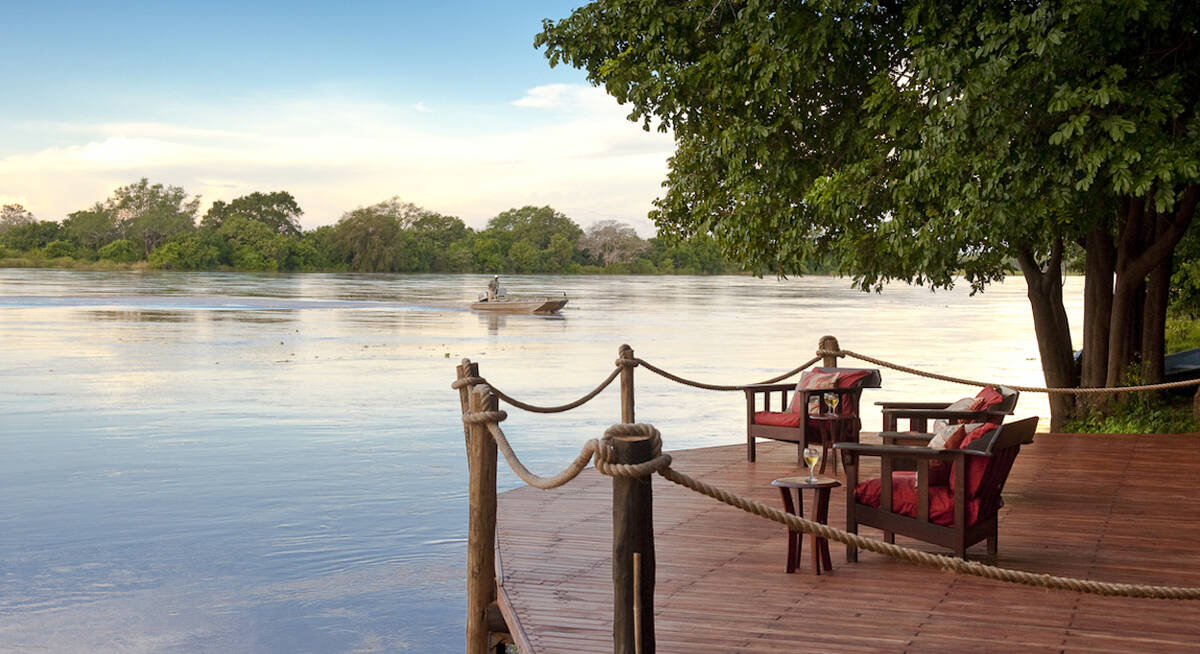
Hyena Safari
11 days • 4 locations
VICTORIA FALLS AIRPORT TO LILONGWE AIRPORT
Mix relaxation and adventure on a safari combining the South Luangwa with Victoria Falls and the beaches of Lake Malawi. These three locations are among the most iconic in southern Africa.
US$9,490 - US$11,910 per person

Red Zebra Cichlid Safari
7 days • 2 locations
BLANTYRE AIRPORT TO LILONGWE AIRPORT
Explore two of Malawi's highlights, with a safari in rugged, remote Majete Wildlife Reserve before some beach time: relaxing, snorkelling and sailing in Lake Malawi National Park.
US$3,580 - US$4,500 per person
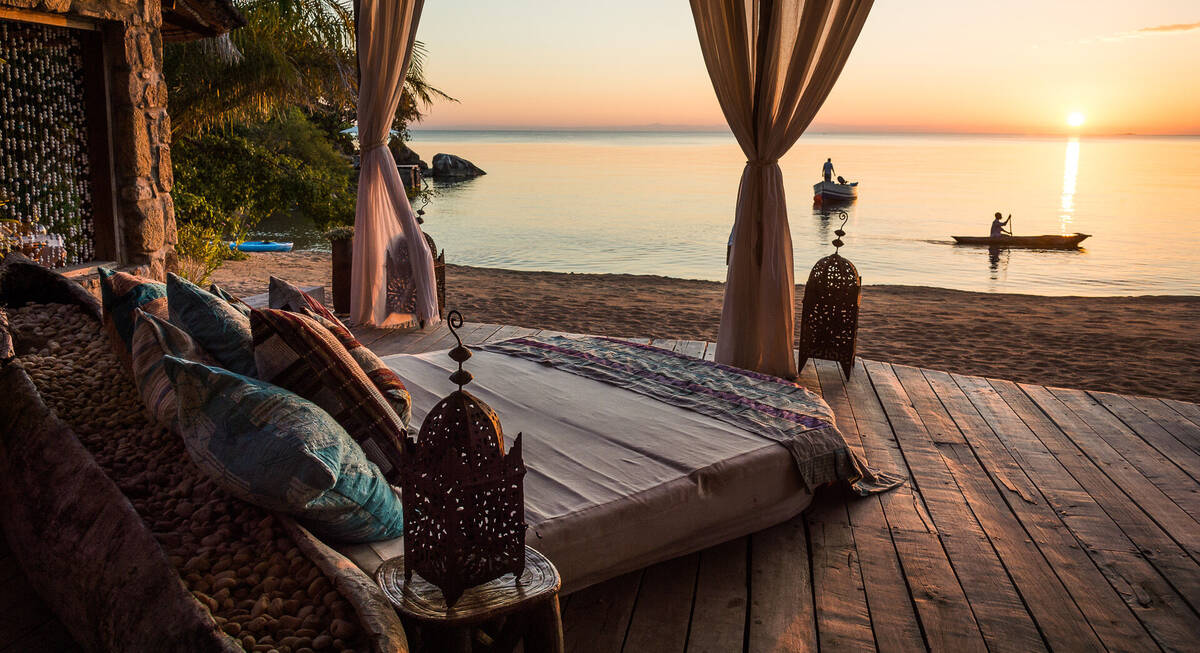
Peacock Cichlid Safari
4 days • 1 locations
LILONGWE AIRPORT TO LILONGWE AIRPORT
Snorkel in Lake Malawi’s famously clear fresh water, relax on the beach and explore Likoma Island from the award-winning Kaya Mawa. A chilled luxury add-on to end your safari.
US$3,600 - US$4,480 per person

Utaka Cichlid Safari
10 days • 3 locations
BLANTYRE AIRPORT TO LILONGWE AIRPORT
Explore two of Malawi's safari parks - Majete Wildlife Reserve and Liwonde National Park - before finishing your trip with some beach time: relaxing, snorkelling and sailing in Lake Malawi National Park.
US$4,560 - US$5,700 per person
Plan and book your trip with Expert Africa
All of our trips are tailor-made, so we'll always adapt them to suit you. Talk to an Expert and let us plan and arrange your perfect trip.

Talk to an Expert
Call or email us now! We’ll match you with the Specialist in our team who is best suited to help you. Then together we can start planning your trip.

Set up your itinerary
Based on our experience and your ideas, your specialist will create a detailed, costed itinerary. We’ll refine it together, until we have a trip that you’re perfectly happy with.

Prepare for your trip
The same Specialist will make the seamless arrangements for your trip, send you detailed travel documents, and be available to answer any questions before you depart.

Travel with peace of mind
After you set off, you’ll be cared for by our partners in Africa, most of whom have worked with Expert Africa for decades. And if you ever need us urgently, we’re available 24/7.

When you return
We love to learn about your trip, and so will always be grateful if you’ve the time to give feedback to your Specialist when you return.
Where to stay in Malawi
Ask us for more details of what’s where, and what’s likely to suit you best!
Special types of holiday to Malawi
A holiday in Malawi is as much about how you travel and your interests as about the country itself. Families are drawn by the variety, culture vultures by the people and history; some come seeking solitude; others a beach lodge or a luxury safari - or both.
Watersports feature high on the list, from snorkelling and diving to kayaking and sailing. Wildlife holidays share top billing in Majete and Liwonde, with superb birding in the mix too.
For photographers, stunning lakeside scenery backed by high, verdant mountains vie with underwater shooting in clear lake waters – and of course wildlife close ups on safari.
Up in the mountains, hiking comes into its own, from short walks to challenging treks, and horseriding adds a further dimension.
Take a look at the options, then talk to us and we’ll help to create a holiday in Malawi designed to suit you.
Frequently Asked Questions
Malawi FAQs
How often have you thought of a travel question that feels too trivial to ask? Most people feel like that sometimes, yet such questions are important.
Below we’ve included some of those that we’re frequently asked – from where you can see the “big five” in Malawi, to what exactly are cichlids.
No matter how small your question may seem, please don’t hesitate to contact us. Our experts have years of experience travelling in Africa – and we’re here to help.
Where can you see the “big five” in Malawi?
Following extensive regeneration since 2003, Majete Wildlife Reserve once again boasts all five of these iconic animals, having been sorely neglected in previous years. Its 700km² of fairly rugged land now protect not just the “big five” but also giraffe, cheetah, zebra and of course plenty of antelope. Hippo and crocodiles, too, are in their element in the fast-flowing Shire River as it flows alongside the park.
That same river defines the smaller Liwonde National Park, but here its waters – equally attractive to hippo and crocodiles – flow more slowly, lined by palm trees and imbuing a lush, tropical feel. Elephant and buffalo are commonly sighted in the park, though leopard – while present – are more elusive. Lion, wild dog, black rhino and cheetah have all been reintroduced since 2015.
How much is a safari in Malawi?
Costs depend on the time of year you’re travelling, where you’re travelling, how you’re travelling, and your choice of accommodation. Take a look at our suggested holidays in Malawi, then get in touch with us and one of our Malawi experts will help you to create an itinerary around your budget.
Why is Malawi particularly good for a family holiday?
Diversity runs through the landscape, from rolling hills and highlands to lush forests and fascinating national parks, and on to the beautiful beaches of Lake Malawi.
Activities around the lake make it a superb family destination, from swimming and snorkelling to kayaking and sailing. With countless colourful fish, there’s plenty to see beneath the waves, while small islands dotting the lake are excellent for exploration.
Combine this with a wildlife safari, typically to Majete Wildlife Reserve or Liwonde National Park, where low visitor numbers allow a more intimate family experience than in many other countries.
Whether your family wants to run along a sandy beach, or play in the waves, or explore local markets, or hike in the mountains, Malawi comes up trumps.
What exactly are cichlids?
Indeed, the clear waters of Lake Malawi, covering an area of 30,000km², can seem like a vast aquarium. More than 800 species of cichlid inhabit these waters, many of them endemic - and many at risk of extinction.
They range in size from 2.5cm to 90cm, and exhibit a wide variety of behavioural traits - from complex breeding rituals to advanced forms of parental care. Many are also aggressive, especially during the breeding season or when defending their territory.
The diet of cichlids is equally diverse, with herbivores, carnivores and omnivores all featured within their ranks. It’s an adaptability that makes them particularly interesting for scientific research, offering valuable insights into the processes of natural selection and adaptation.
What's it like to swim in Lake Malawi?
When swimming anywhere in Africa (and Lake Malawi is no exception) it’s wise to take informed local advice about the dangers – which could come from larger animals like hippos and crocodiles or from unseen hazards like bilharzia.
Sticking to well-known swimming locations – checked with well-informed local experts – is the best advice to avoid any problems. Then you can take in your surroundings at leisure, from those myriad fish to distant rolling hills lit up by an African sunset.
Our other African destinations
As specialists in Africa, we are well-placed to help you choose the right country for your African adventure.
While Malawi offers plenty of variety, those in search of a more focused safari experience might like to consider neighbouring Zambia, whose South Luangwa National Park can also work well for a top-notch safari in combination with a Malawi holiday.
Zimbabwe, too, offers high standards of wildlife guiding and – like Zambia – has the added bonus of the Victoria Falls.
For something a little less “wild”, take a look at Kenya or Tanzania, whereas for a self-drive holiday, Namibia is a must.
Entirely different is Rwanda, where visiting a family of mountain gorillas is a once-in-a-lifetime opportunity.
Like Malawi, several other countries – Kenya, Mozambique and South Africa - present the combined appeal of safari and beaches, or how about an idyllic island add-on to Zanzibar or even the Seychelles?
The choices are many and varied, so do contact us; we’re here to help you plan your perfect African holiday.
Elephant safari
in Linyanti
Talk to a Malawi Expert
These members of the Expert Africa team have been to Malawi and can advise you from their own personal experience.
Start a conversation with them today to help plan your trip.
